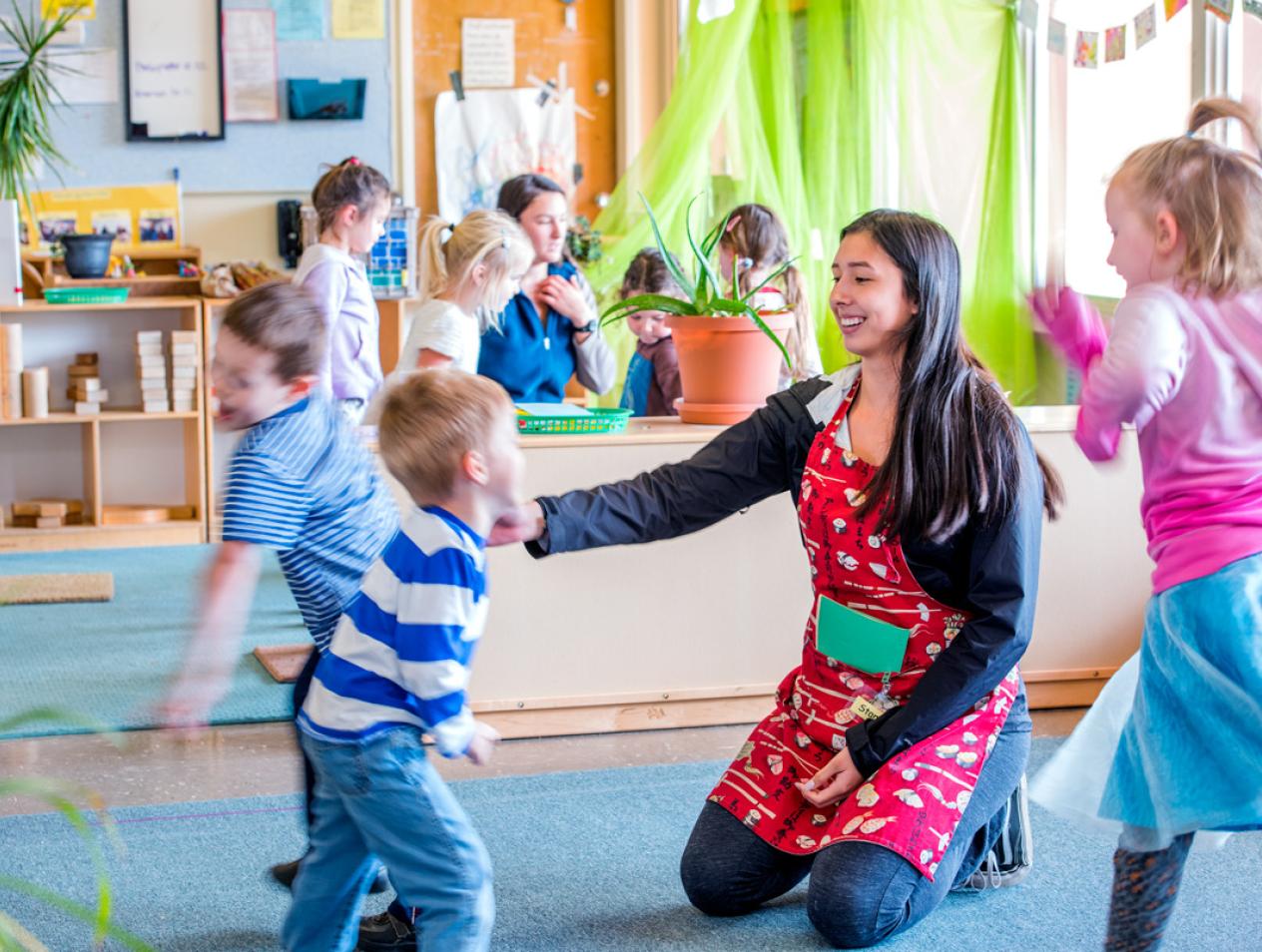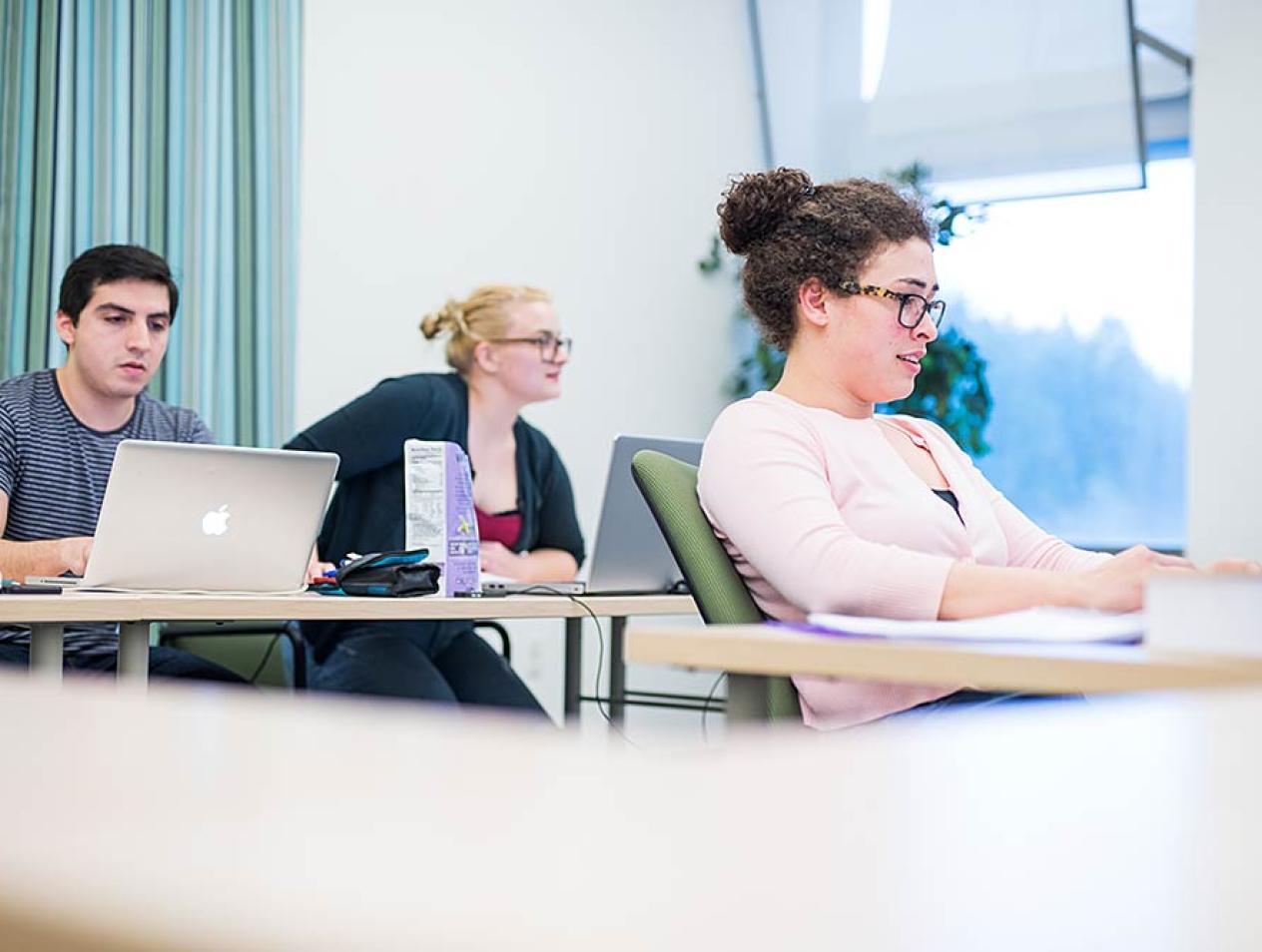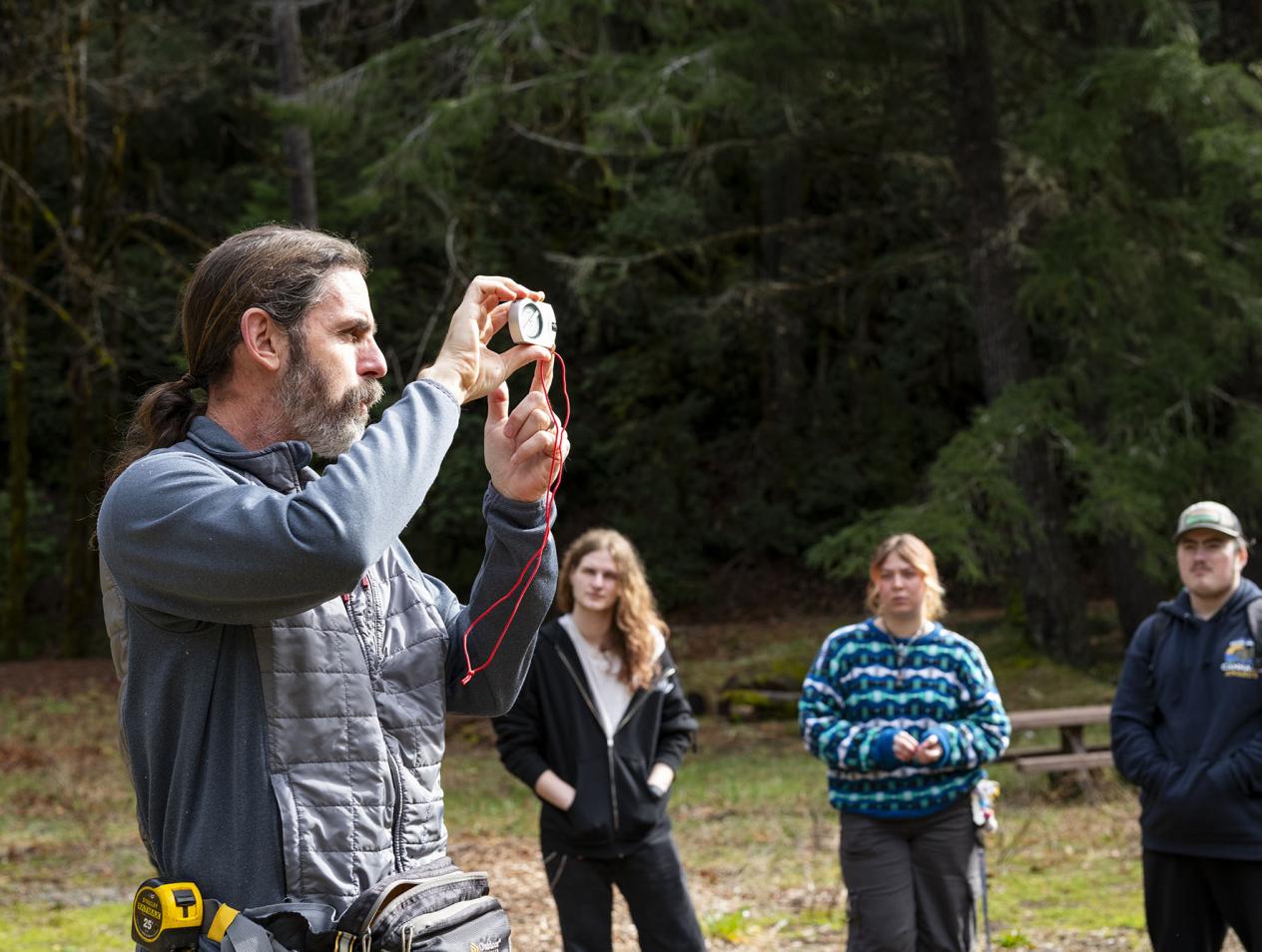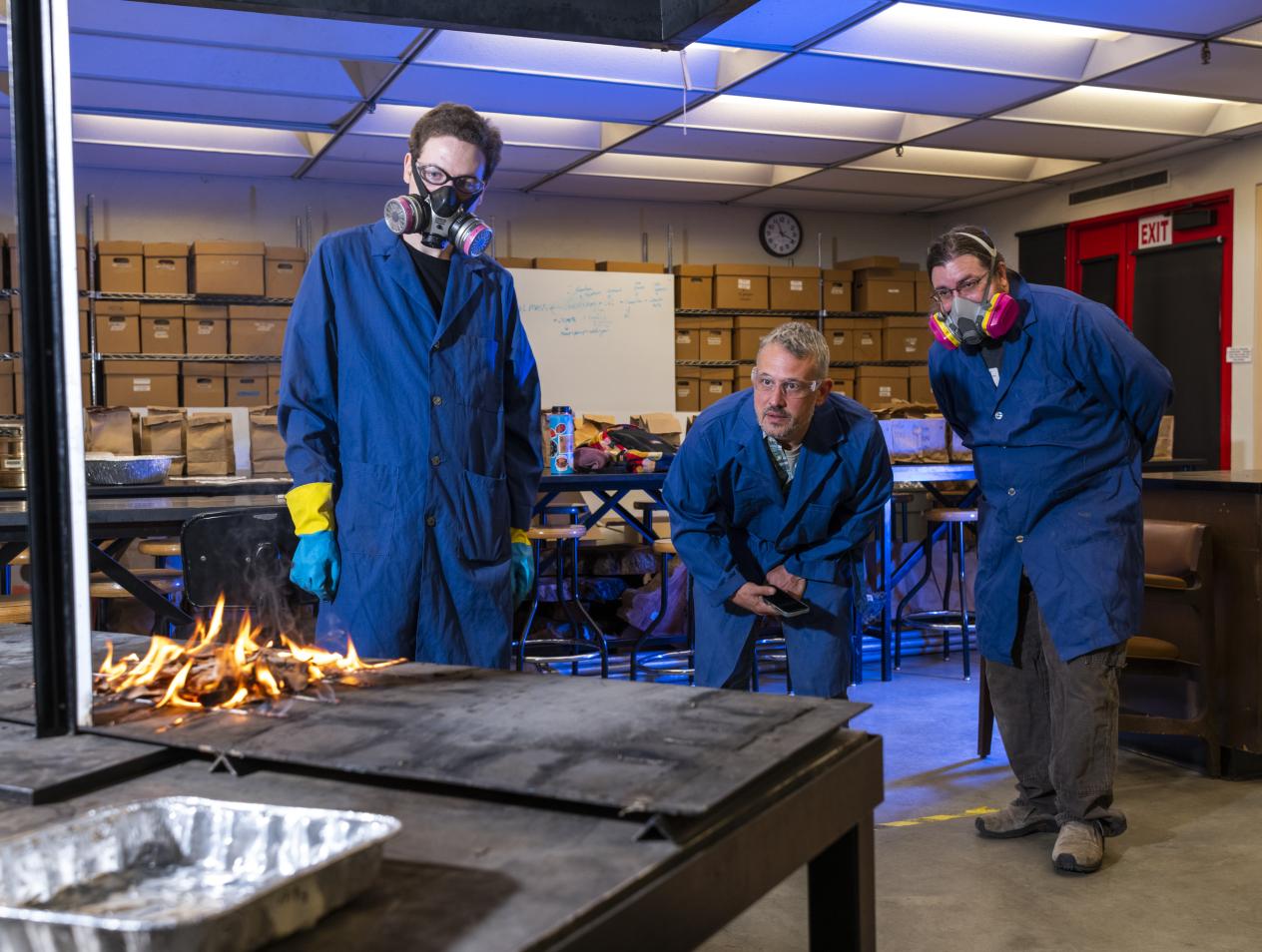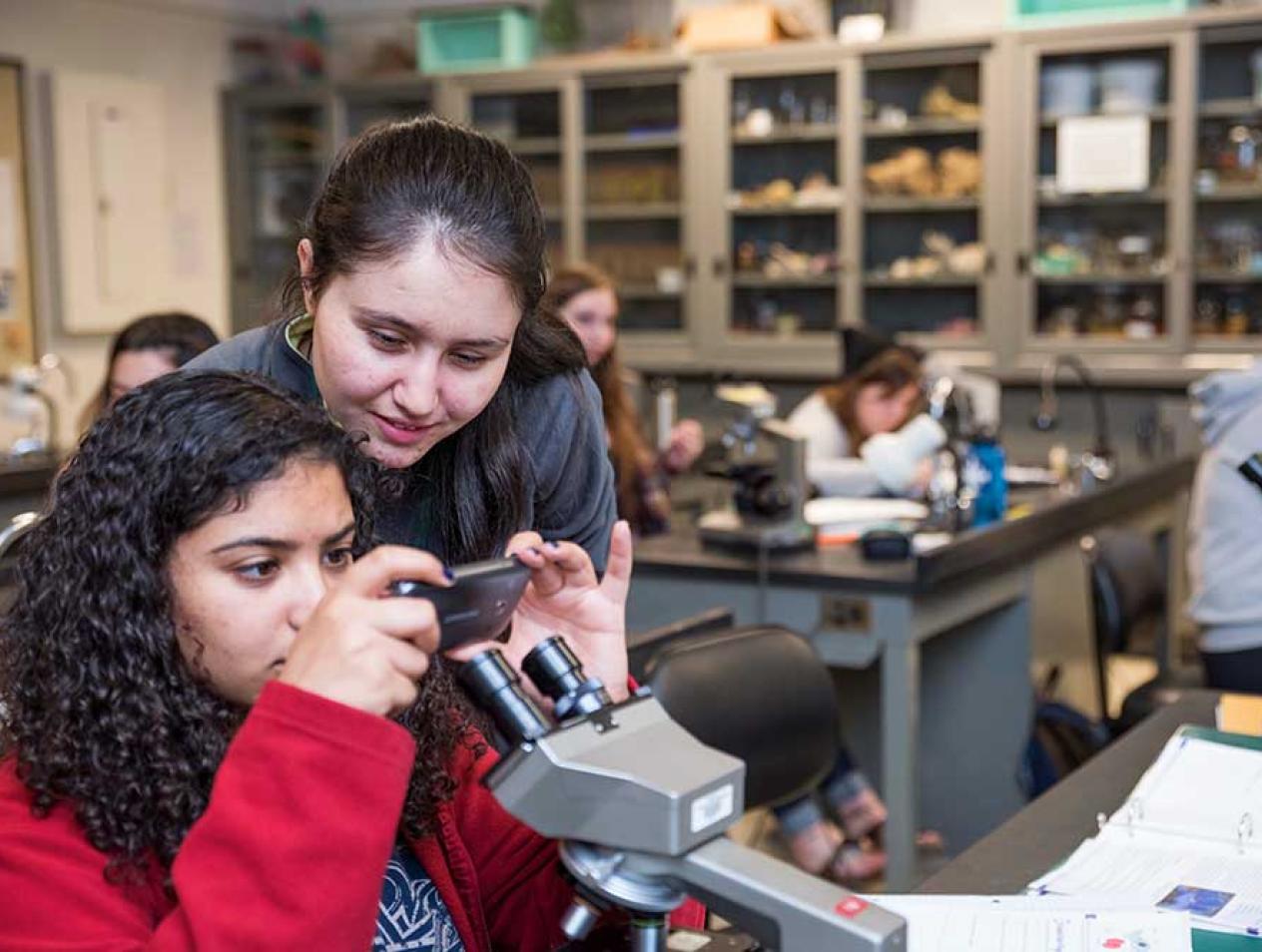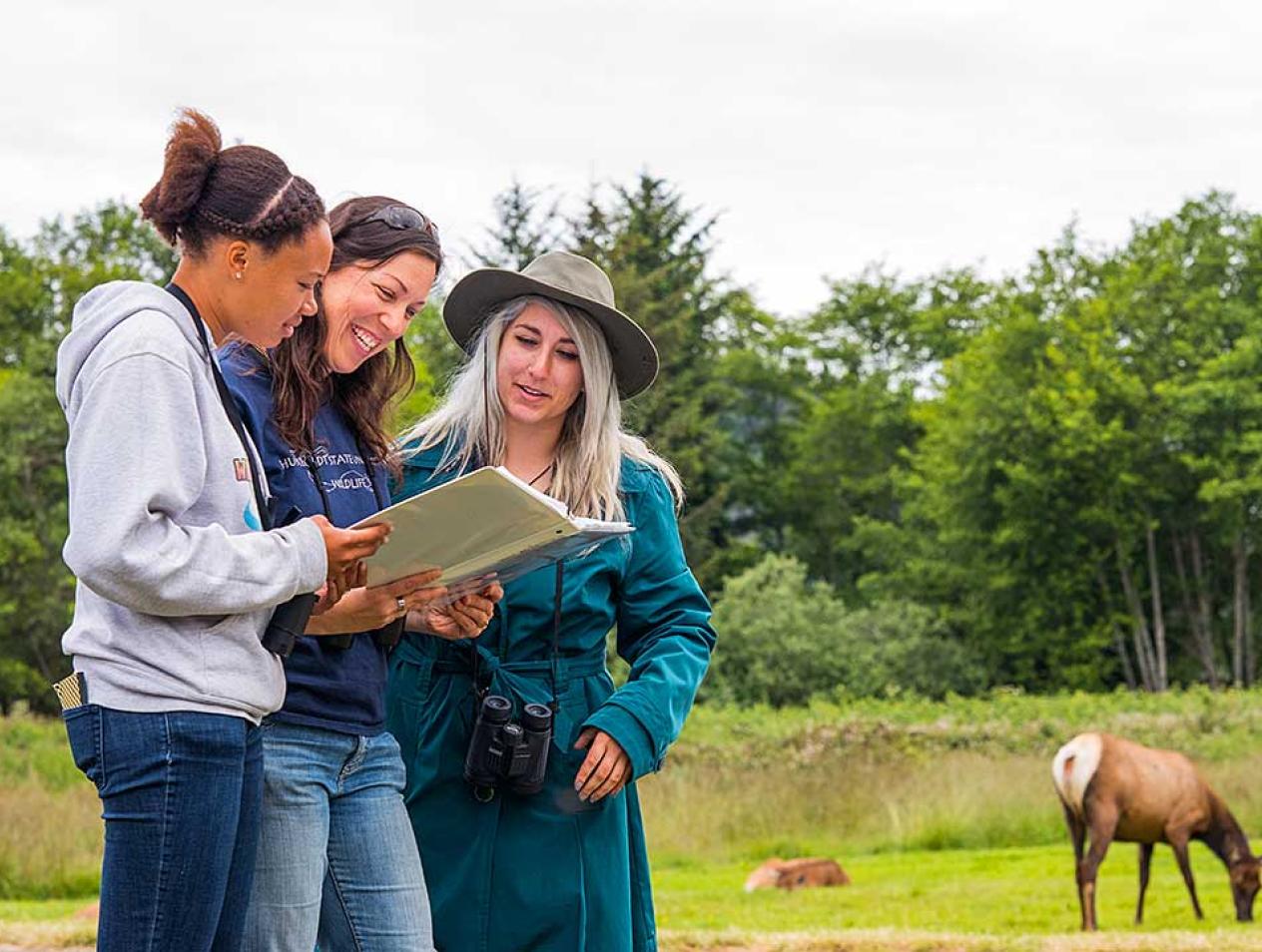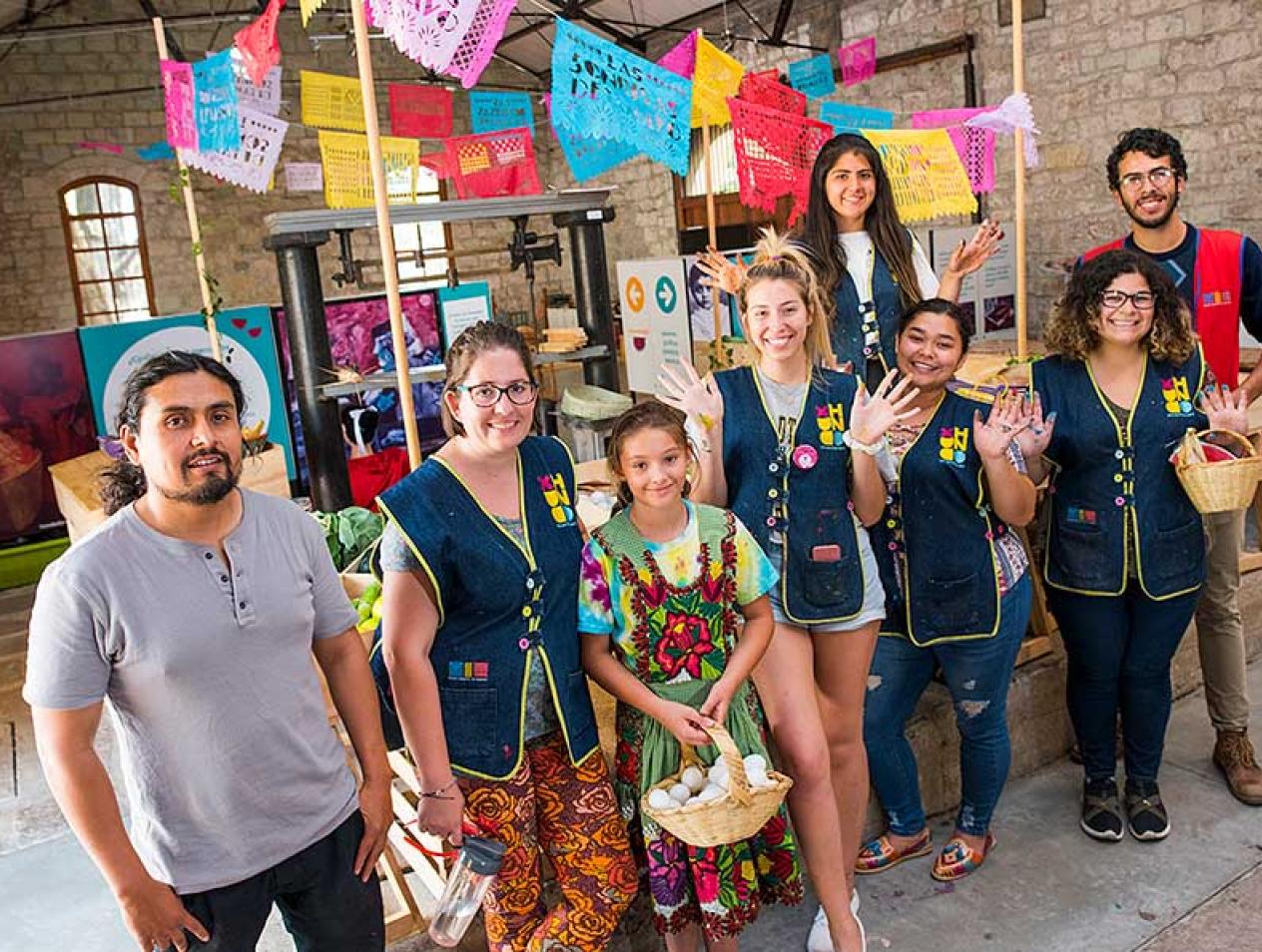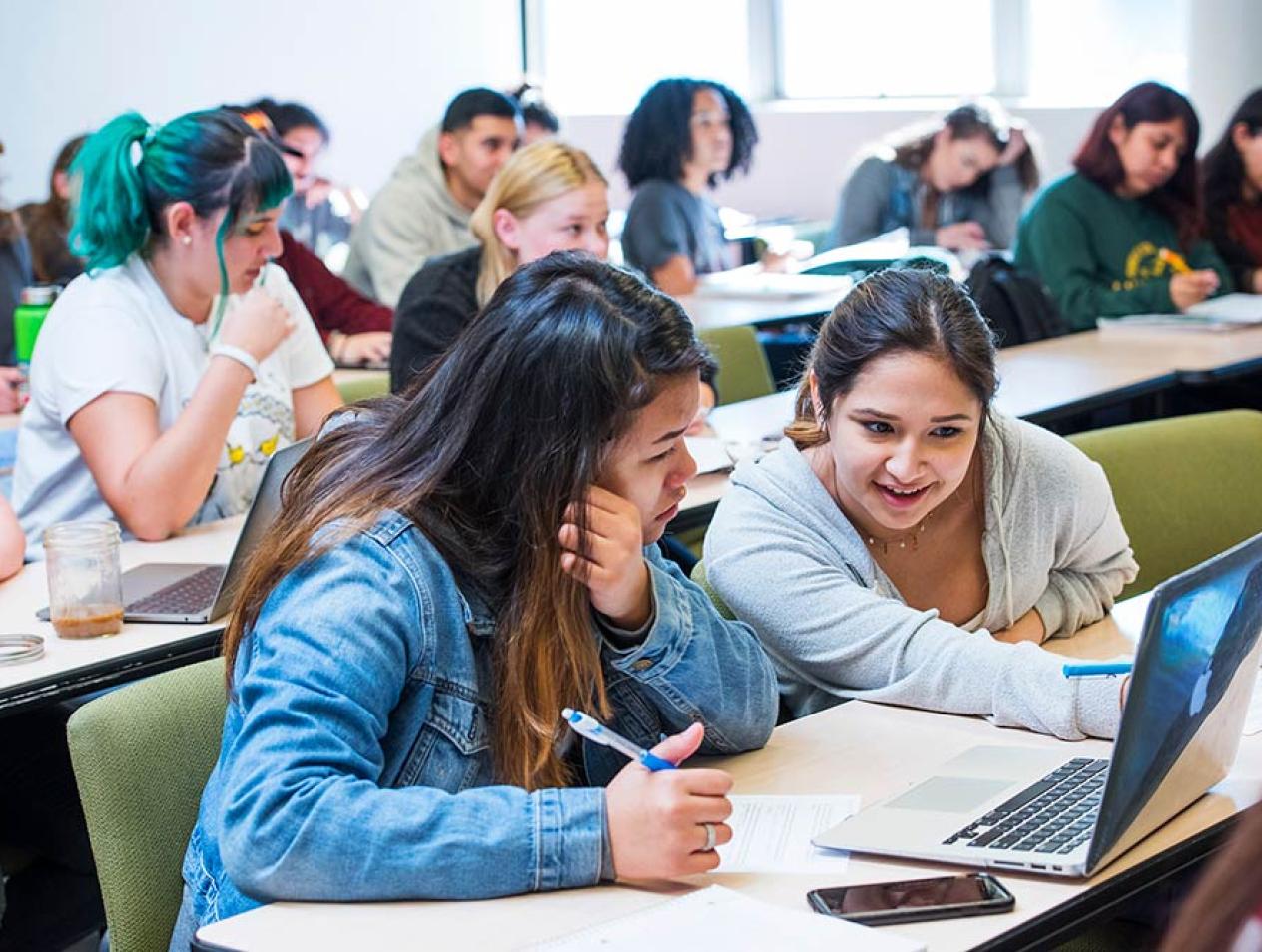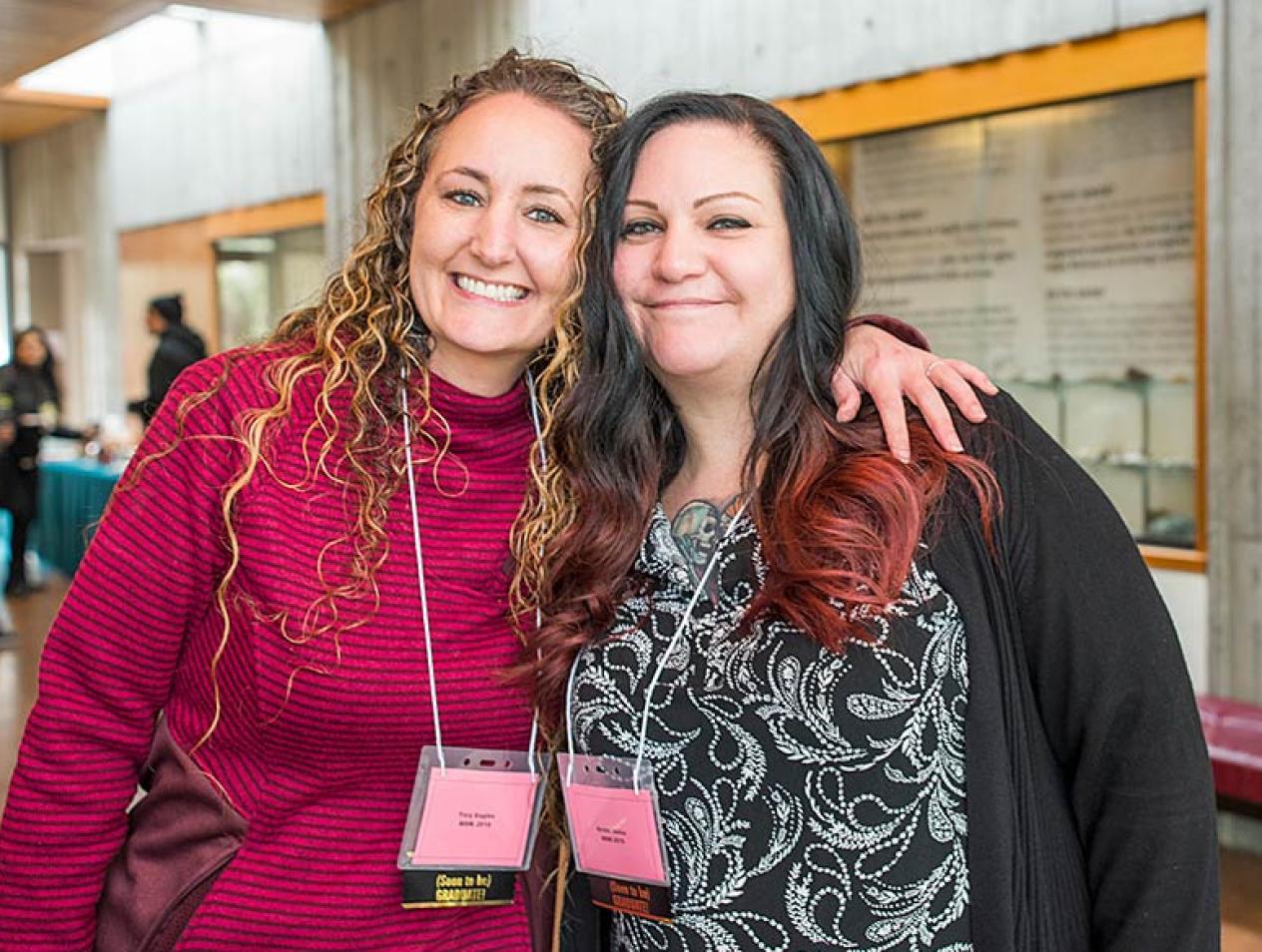Breadcrumb
Child Development & Family Relationships, B.A.
The Child Development & Family Relationships major prepares students to support the development and wellbeing of children and their families. Taking inclusive, multigenerational, relational, and lifespan approaches, students incorporate multilogical thinking and trauma informed care/practices in their work. Students embrace the importance of contexts and culture in development, learning, and relationships. Through practicums, service learning, policy analysis, and internships, students apply the course content in the field. Additionally, students work with their academic advisors to create individualized programs that support their interests and professional development and provide a strong foundation for continued education.
Why this Program
Our faculty stay abreast of the most recent research related to the field of Child Development. Research projects, which involve students, are conducted by individual faculty members, as well as by the department as a whole.
Child Development majors work side by side with faculty, as peer mentors and Assistant Head Teachers at the Child Development Lab, by providing feedback and supporting students in specific classes. Students have opportunities to work in the community, gaining valuable professional experience that integrates theory into practice.
This major provides a pathway to teaching and provides at least 24 units of Child Development to meet the California Commission on Teacher Credentialing (CTC) subject matter requirements for the PK-3 Early Child Education Specialist Instruction Credential.
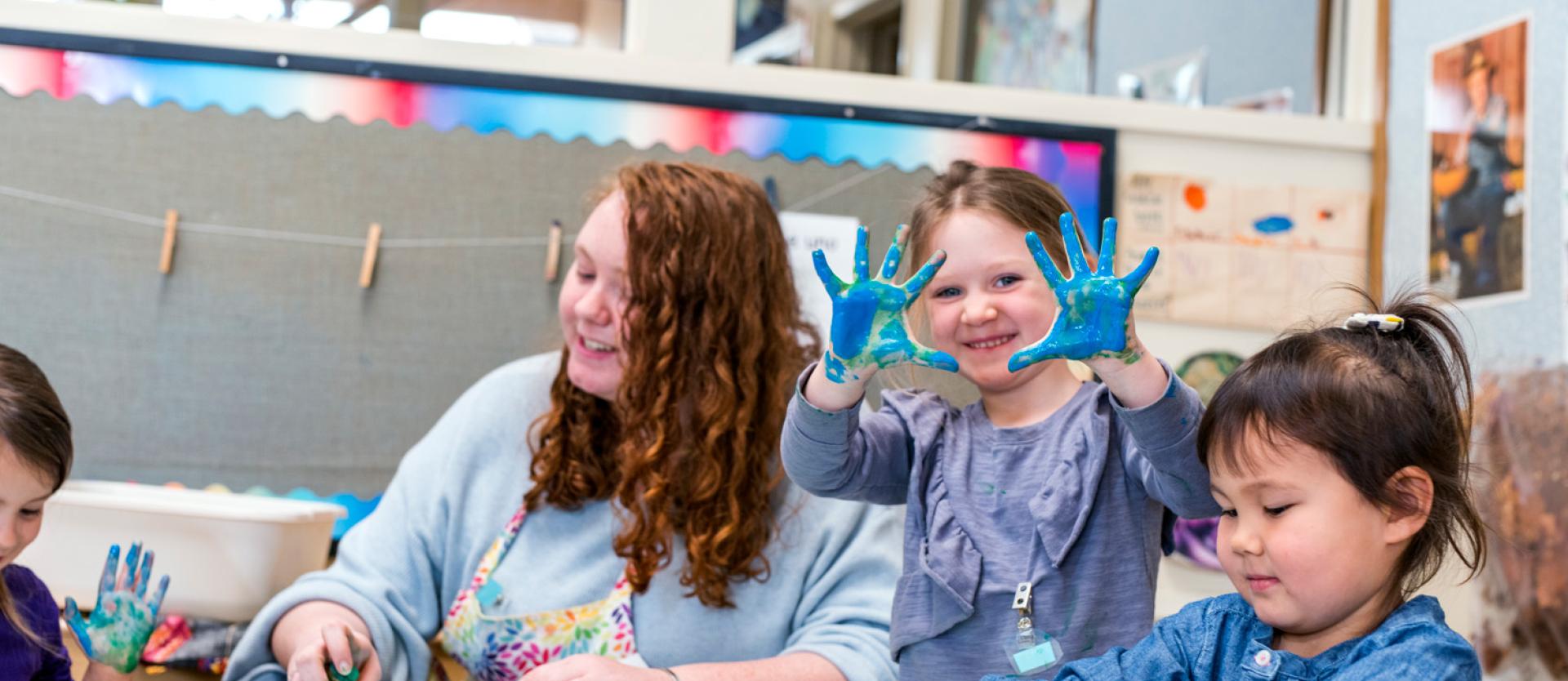
Concentrations
Students further select from the three options: 1) Early Childhood Education, 2) Elementary Education, or 3) Special Education/Early Intervention). Graduates apply for a 5th year credential in Elementary Education or Special Education to be able to work in public schools. There are specific electives that are used for each teaching concentration.
Suitable for students who want to go to the field of School Psychology, Counseling, Recreation, Language Studies, Program Administration, Social Work, American Indian Education, Technology, or Diversity. Students plan their coursework and experiences in consultation with their academic advisor.
Suitable for students with many transfer units, interested in other minors (e.g., Dance, Art, History, Math) OR specialized fields of study post-graduation (for example, Speech & Language Pathology; American Indian Education; Child Life Specialist; Pediatric Nursing). Students plan their coursework and experiences in consultation with their academic advisor.
Did you know?
- Our faculty partner with local tribes and organizations to provide professional development, consultation, and early college learning experiences.
- The Child Development Lab founded in 1968 by Dr. Emilia Tschanz, will be relocated to a newly remodeled Trinity Annex in Fall 2023, serving multiple generations of families.
- Several of our students are athletes, parents, and volunteers/leaders in the Youth Educational Services program. Many of our alumni work as professionals in the community and provide mentorship and networking to current students through experiential learning or visiting our professional development class.
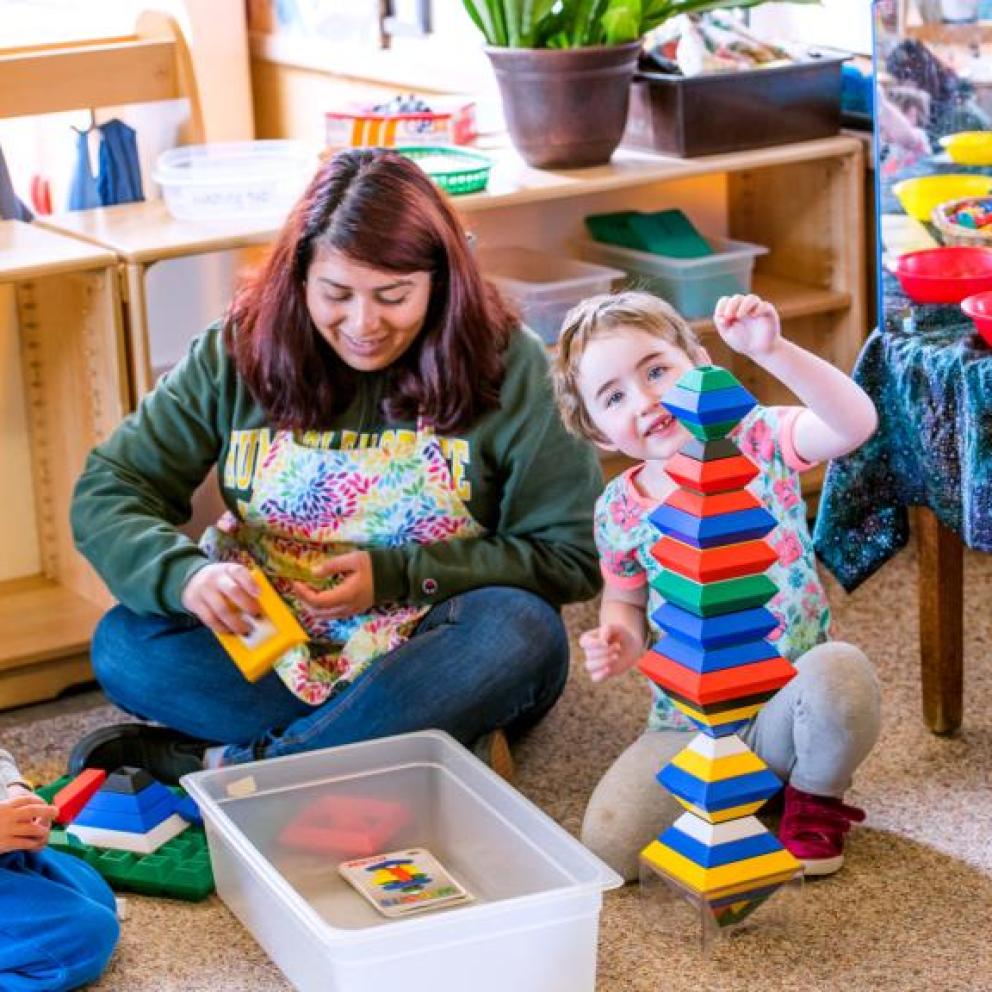
Careers
The Child Development and Family Relationships program offers versatility in post graduation careers, such as
- Teaching in public or private schools or for profit programs
- Public policy analysis, research, and advocacy for children and families
- Families and children or intervention services (Parent/Family Life Education, Early Head Start, Family Resource Specialist, Family Preservation, Juvenile Justice, etc.)
- Community mental health, DHHS, ACES and Resilience careers, community development
- Recreation leadership (e.g., Parks and Recs., summer camps, etc.)
- Case manager, paraprofessional in education, home visitor, Infant Early Childhood Mental Health practitioner, after school program coordinator
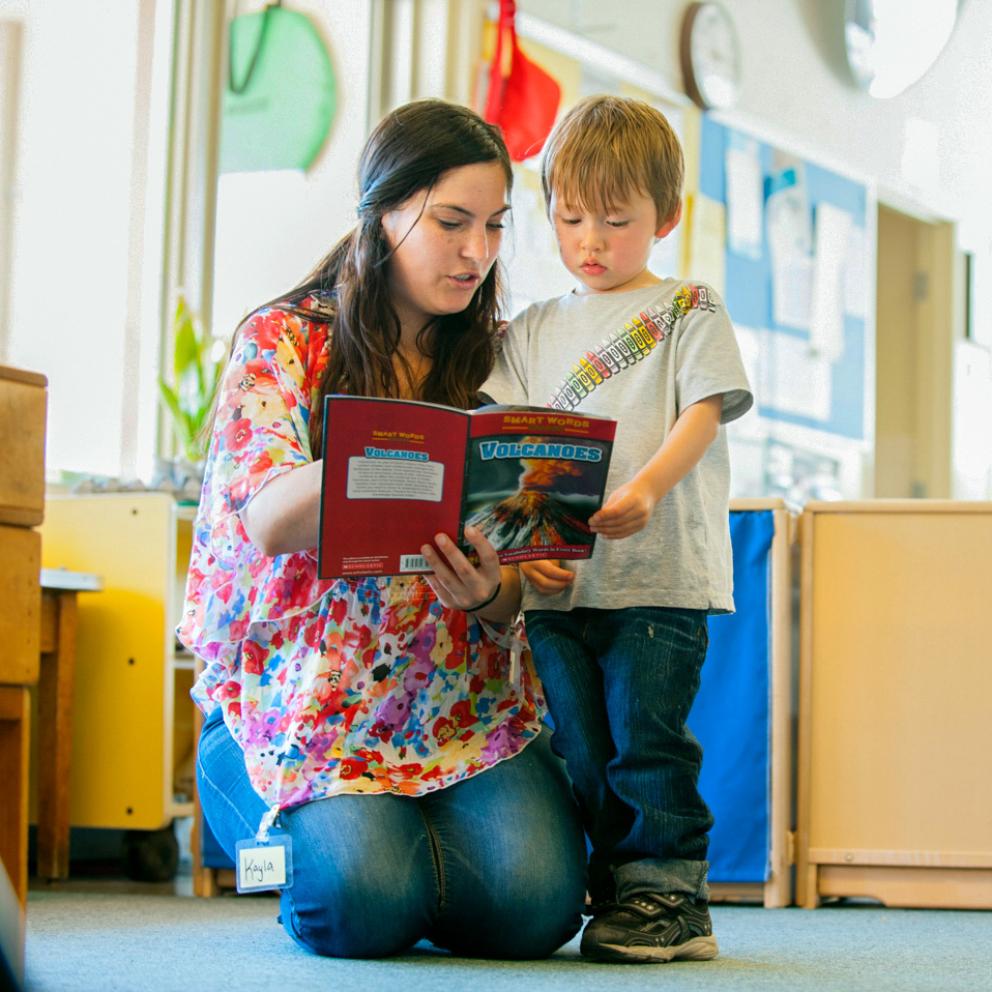
Related Programs
Breadcrumb
Software Engineering, B.S.
Software Engineering is a field that applies engineering concepts to software development. It encompasses the development, operation and maintenance of programs. The curriculum of software engineering programs includes computing fundamentals, software design and construction, requirements analysis, security, verification, and validation; software engineering processes and tools appropriate for the development of complex software systems; and discrete mathematics, probability, and statistics, with applications appropriate to software engineering.
Why this Program
Explore implementing software engineering for good by examining case studies and working on projects that tackle real-world problems.
Learn to identify and solve complex modern problems through software systems with a focus on sustainability, equity, and justice.
As a freshman majoring, you, along with Software Engineering, Math, Data Science, and Geospatial Analysis majors, will automatically be part of our Place-Based Learning Community called Representing Realities.
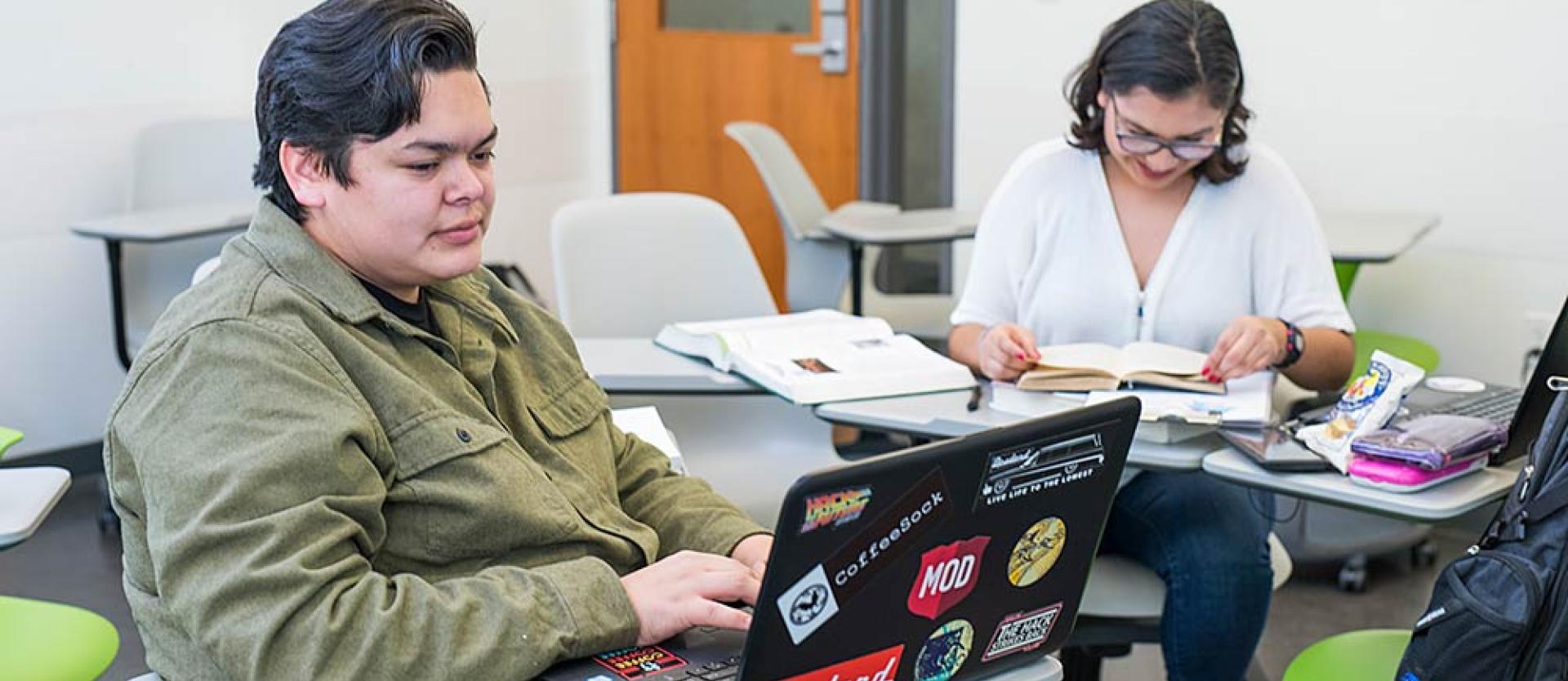
Careers
In the fast-growing field of software engineering, graduates are qualified to pursue highly paid careers in cybersecurity and positions in software development. Graduates may also have opportunities to work on projects related to embedded software, which is used in virtually every industry, from medicine to aeronautics.
- Aeronautics
- Communications
- Medicine
- Transportation
Related Programs
Breadcrumb
Cannabis Studies, B.A.
With a focus on social and environmental responsibility, the bachelor’s degree program explores the historical, geographical, cultural, economic, and political contexts of cannabis legalization. Drawing curriculum across multiple disciplines, the program prepares students to be stewards of social change in complex policy landscapes, developing skills in critical and analytic thinking, writing, communicating with diverse communities, as well as engaging with science and research. Shedding light on the implications of contemporary social problems on the limits, possibilities and promises of cannabis policy reform to address them is the key to building a sustainable and equitable future.
**Per Cal State University policy, at this time the Cannabis Studies major does not include touching cannabis or training or curriculum in cultivating, processing, or selling cannabis.
Why this Program
The program is grounded in a stigma-free, ethnobotanical approach to cannabis policy and markets, for which the main purpose of legalization is to address social justice problems related to the prohibition of the plant.
Students will explore intersectional social issues that include environmental stewardship, drug policy reform, protecting traditional cannabis communities, sustainable economic development, equitable legalization, and more.
While graduates will be qualified to specialize in cannabis jobs in the public and private sectors, they will develop applied skills that will apply to careers associated with community and environmental stewardship.

Program Concentrations
Grounds students in bioregional values and practices developed by the countercultural people who came to Humboldt County watersheds in the 1960s and founded two institutions of global significance: a radical environmental movement and the American sinsemilla cannabis industry. Graduates will learn principles of regenerative agriculture and environmental policy reform to prepare them for service in the public and private sector.
Grounds students in drug policy reform values and practices centered on addressing harms of prohibition. This policy stewardship concentration centers intersectional social movement values and practices to prepare graduates to work inside and outside regulatory institutions to be change agents in landscapes of significant social reform, especially cannabis legalization from the local to the global level.
Did You Know?
The Cannabis Studies Program has received a $2.7 million grant from the California Department of Cannabis Control to study “Legacy Cannabis Genetics: People and Their Plants, a Community-Driven Study.” This project is a multi-disciplinary, community-based participatory research project that will identify, document, and help to preserve the history, value, and diversity of California’s rural legacy cannabis genetics and the communities that steward them.
Funding is available for student research assistants in the new major.
Among the nation’s top cannabis scholars and researchers, our faculty have examined the impacts and mitigation of cannabis criminalization; principles of sustainable and regenerative development; the environmental impacts of cannabis cultivation on public lands; and uneven geographies of regulation, business taxation, and regulatory compliance matters, and more.
The program is designed to explore the intersection of cannabis policy reform and society across disciplines, and it draws on the expertise of professors from Sociology, Anthropology, Biology, Forestry, Environmental Science, Geography, History, Social Work, Native American Studies, Kinesiology, Criminology & Justice Studies and more.
Students will be connected to internships in the public sector (regulatory, planning, and economic development bodies, for example) and private sector industries that do not require touching plants directly (environmental certification and compliance consulting). Internships will be available locally, across the state, nationally and even internationally with government and nonprofits that deal with cannabis policy.
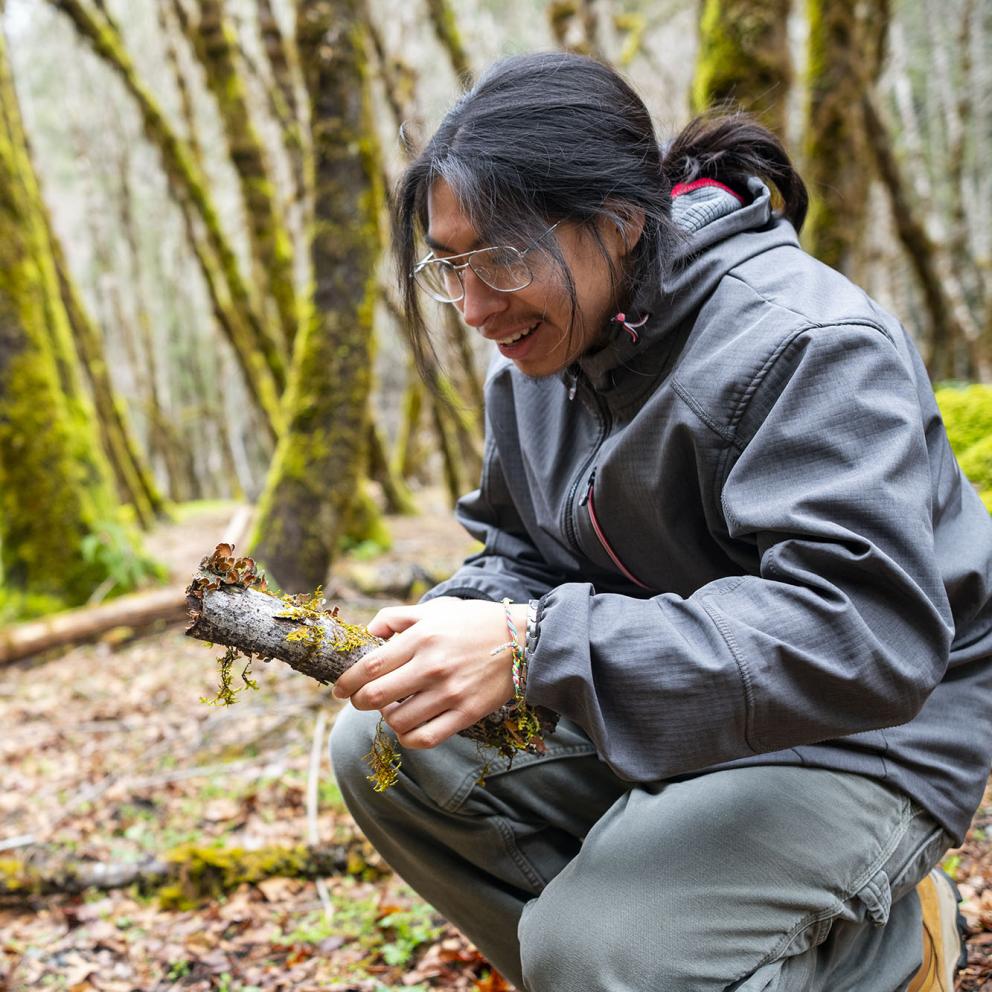
Careers
The knowledge and skills students gain through the Cannabis Studies degree can be applied to a wide range of careers (related and unrelated to cannabis policy and markets). These include compliance officers, research scientists, attorneys, environmental scientists, accounting specialists, among others. At the city and county level, other employment opportunities could include, for example, equity program managers, California Environmental Quality Act consultants, planning, and budget analysts. All of these types of positions are increasingly found across the country, as the nation and much of the rest of the world moves away from prohibition towards regulated cannabis policies.
- Community Development
- Compliance
- Consulting
- Diversity, Equity and Inclusion
- Environmental Management
- Journalism and Media
- Law
- Nonprofit Advocacy
- Policy
- Regulation
- Sustainability
Our Faculty
Breadcrumb
Applied Fire Science & Management, B.S.
Fire is an important ecological and cultural process that promotes biodiversity in many ecosystems. Over the past century, the beneficial role of fire on the landscape has been dramatically altered through intensive forest practices, fire exclusion policies, removal of indigenous burning (and people), and climate change, leading to more frequent, larger, and more destructive wildfires.
Why this Program
Students take their learning beyond the classroom to conduct timely and relevant monitoring and research, which local partners then use to inform fire management.
The campus Fire Lab is among the most well-equipped fire research facilities of any university in the country. Students have access to the Arcata Community Forest behind campus, the Schatz Demonstration Tree Farm, as well as public and private forest lands.
Surrounded by ancient redwoods, and home of the state’s largest Tribal Nations and largest land-based tribes, Cal Poly Humboldt is the perfect place to live and learn.
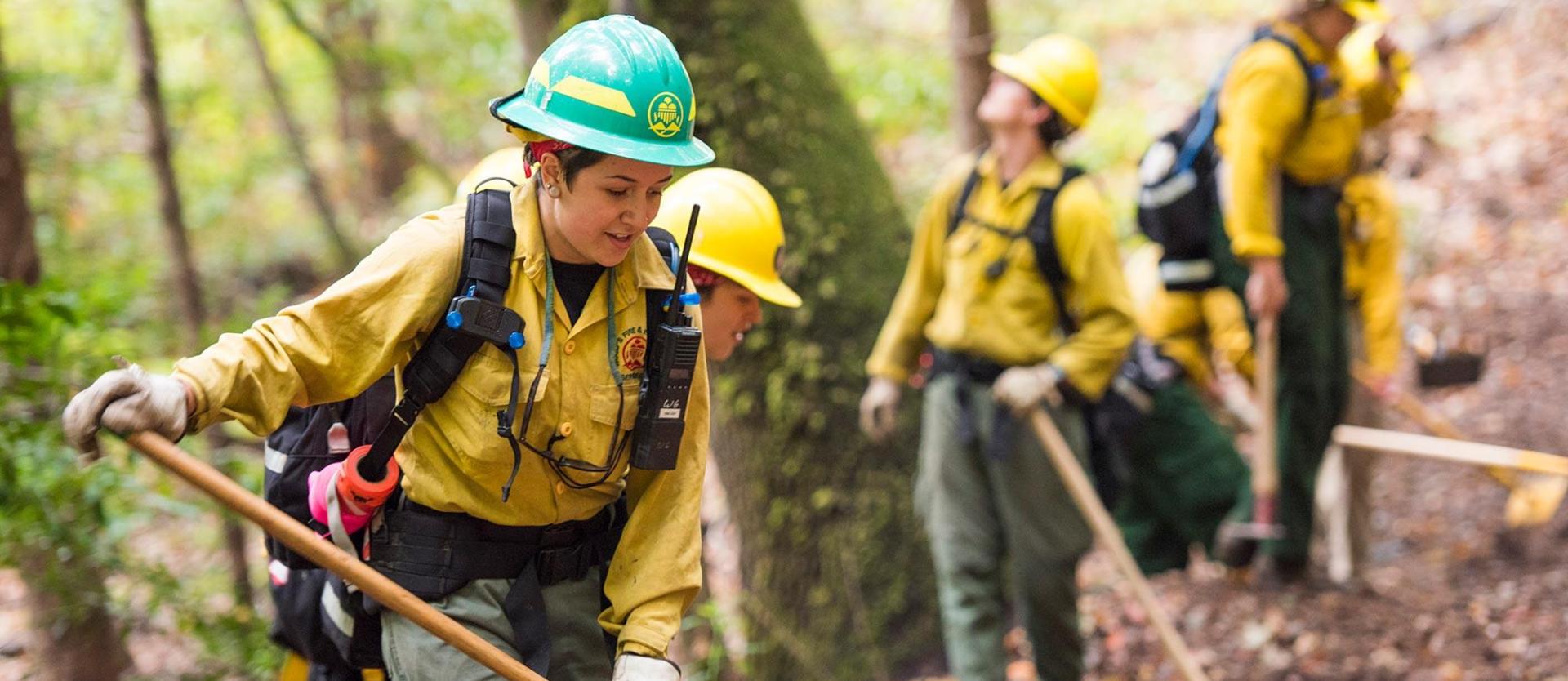
Did you know?
- Cal Poly Humboldt researchers are among the top fire and forestry experts in the nation.
- Our fire program is the largest in the state and one of the largest in the nation, and is one of only two four-year bachelor’s degree fire programs.
- Our neighborhood includes 1.5 million acres of forest and 680,000 acres of state and national parks.
- The 385 acres L.W. Schatz Demonstration Tree Farm, which includes a mix of Douglas-fir, grand fir, and hardwood with an understory of evergreen shrubs and ferns, is often used for student research.
- “Return of the Jedi” scenes were filmed in a forest not far far away.
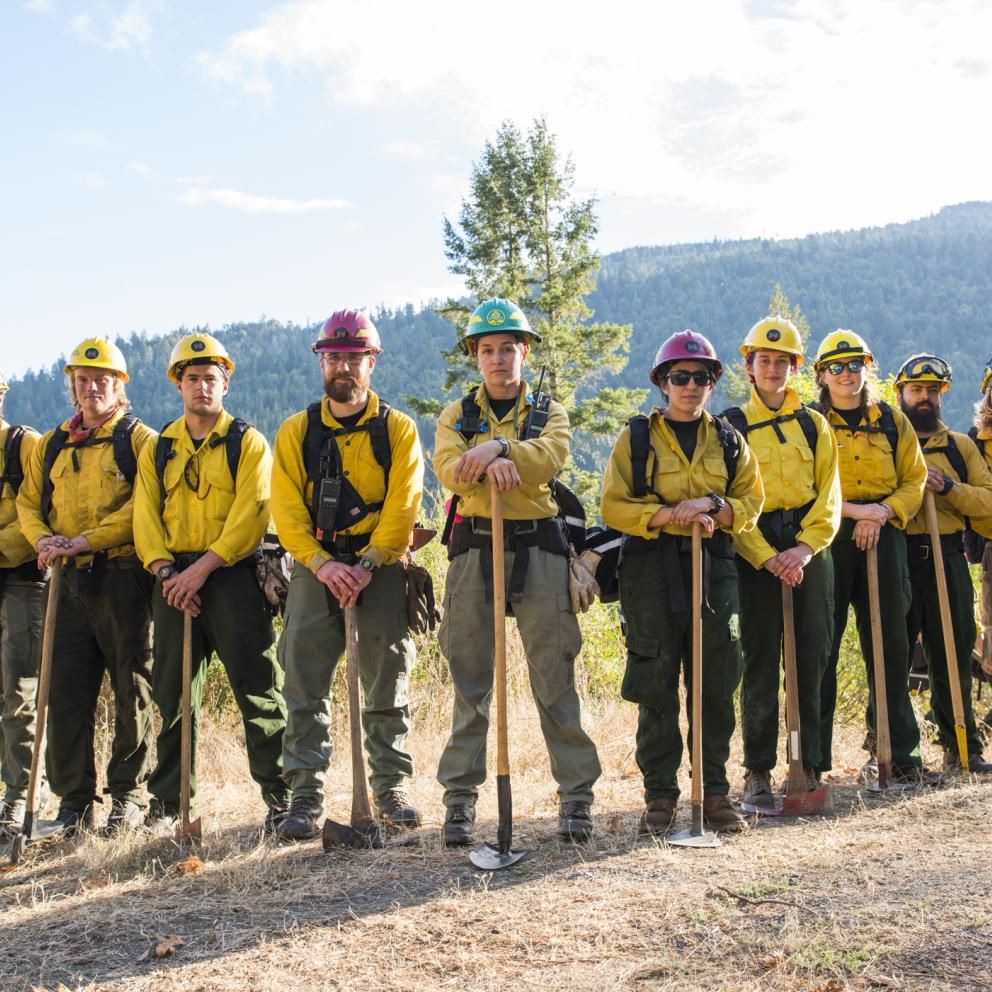
Careers
Graduates of this program are prepared to apply their fire science and ecology knowledge and skills to various natural resource management problems. Given the ongoing trends of increased wildfire frequency, size, and severity in many regions of California and other western states, there is a growing need for graduates in fire science and management programs across the public and private sectors.
- Battalion chief
- Fire captain
- Fire ecologist
- Fire effects monitor
- Fire management officer
- Fire management specialist
- Fire planner
- Fire use module lead
- Fuels management specialist
- Prescribed fire burn boss
- Prescribed fire and fuels technician
- Wildland firefighter
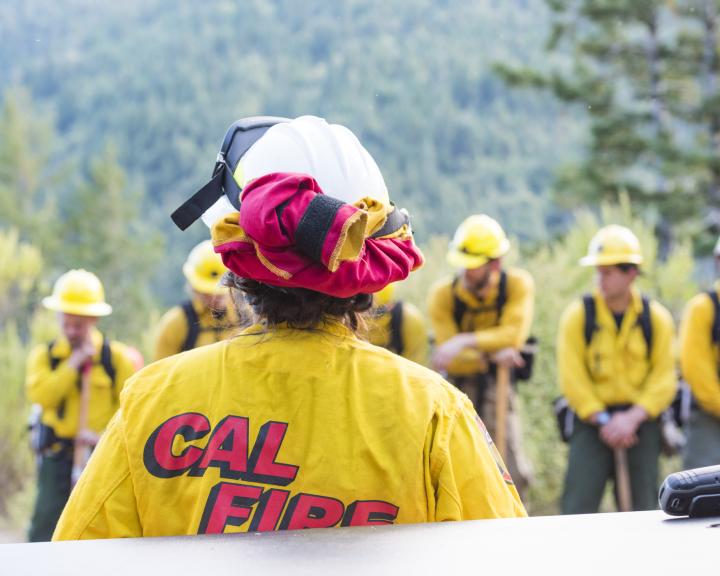
Related Programs
Breadcrumb
Zoology, B.S.
Cal Poly Humboldt is an incredible place to study zoology. Our faculty are dedicated to teaching excellence and hands-on learning, and they lead courses that utilize specialized equipment, impressive natural collections, laboratory facilities, and the ecologically diverse field sites of our region. Extensive opportunities for research prepare our students for a wide range of careers in zoology. Come be inspired!
Why This Program
Where You’ll Learn
Surrounded by a wide range of habitats, including coastal tide pools, mountain wilderness, rivers, and the ocean, we’re in the perfect environment for field research.
What You'll Learn
The Zoology curriculum offers a strong foundation in the study of zoology including the study of the evolution, physiology, ecology and conservation of animals.
Hands-on Learning
Gaining real-world experience is a defining feature of our Zoology program. You’ll get hands-on experience with dissection, experiments, and observation.
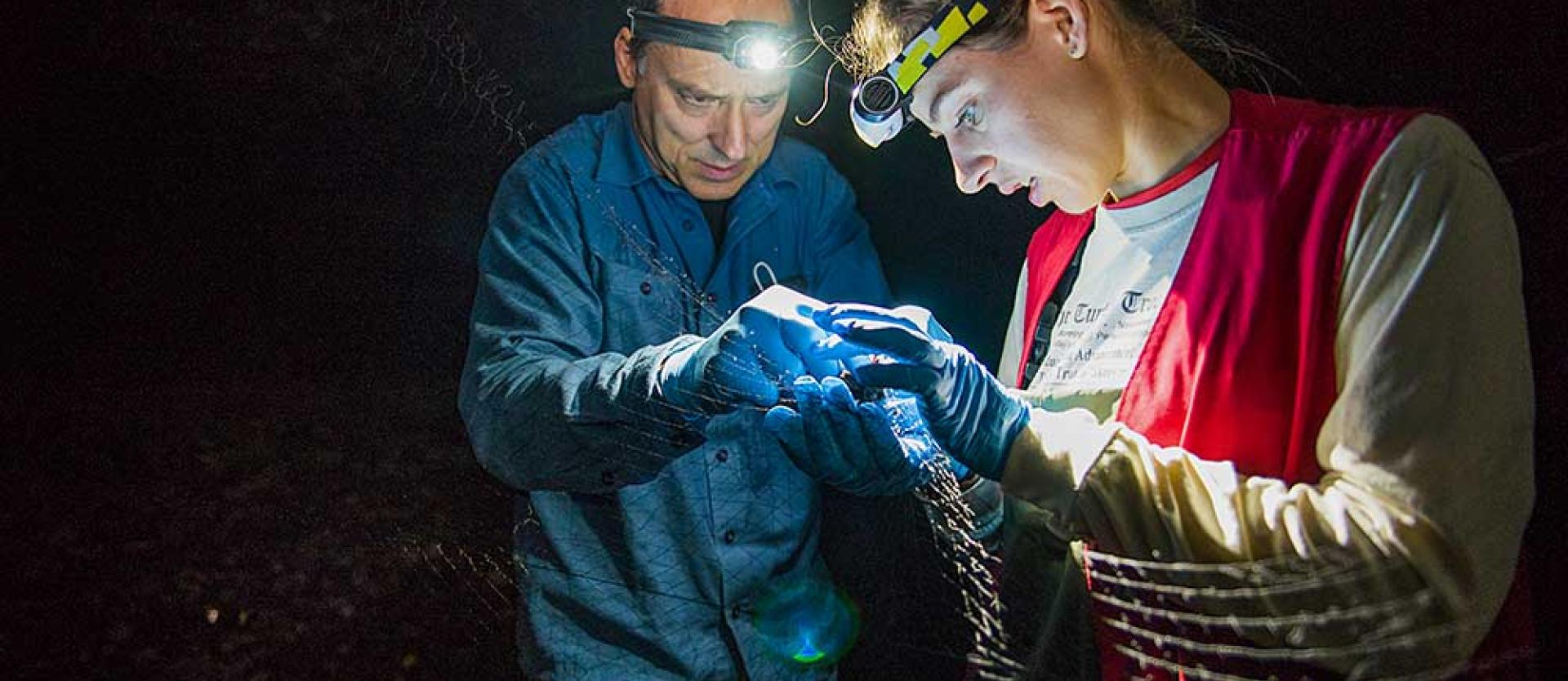
Did You Know?
- Zoology is one of the Biology Department’s most popular majors; it is the only Zoology major in the CSU system, and one of only two in California.
- Humboldt has a low student-to-faculty ratio, meaning you get to know your professors and fellow students closely.

Careers
Favorable opportunities can be expected for biological scientists with advanced degrees and for bachelor's candidates with outstanding educational and experiential backgrounds. Employment in the life sciences is expected to grow due to recent advances in genetic research, advances in biological technology, and efforts to conserve the environment.
- Zookeepers
- Veterinarians
- Veterinary Assistants
- Museum Curators
- Museum Managers
- Federal and State Agency Biologists
- Scientific Illustrators
- Naturalists
- Biological Consultants
- National or State Park Interpreters
- Science Educators
- Scientific Writers
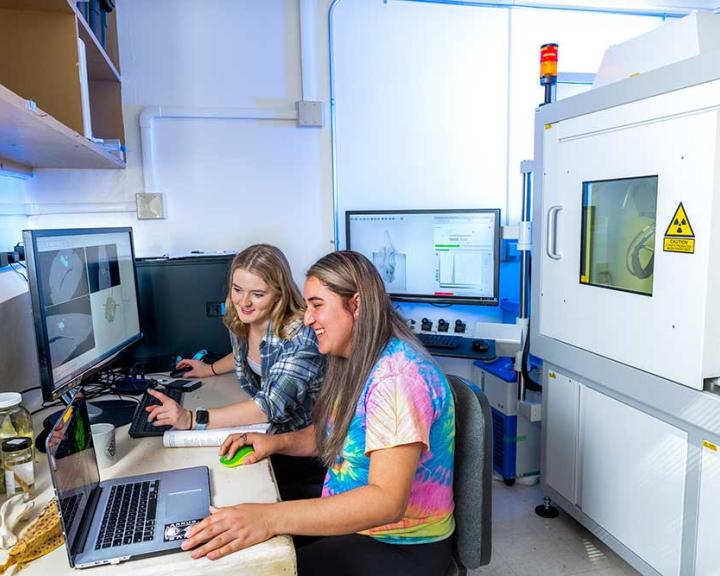
Related Programs
Breadcrumb
Wildlife, B.S.
Cal Poly Humboldt's nationally-recognized Wildlife program provides a rigorous curriculum that includes field experience in nearby natural habitats. Our goal: instill a sense of responsibility, appreciation, and expertise, giving students a deeper understanding of managing and conserving wildlife and ecosystems.
Why this Program
Where You Learn
With access to nearly five million acres of forests, parks, and public wilderness lands, the opportunities to study wildlife, ecology, and management are endless.
Future Careers
Our graduates are well-trained and in high demand—more than 80% are employed after graduation.
Personal Attention
Whether you’re in the classroom, the lab, or in the field, you’ll work closely with faculty who are committed to your success.
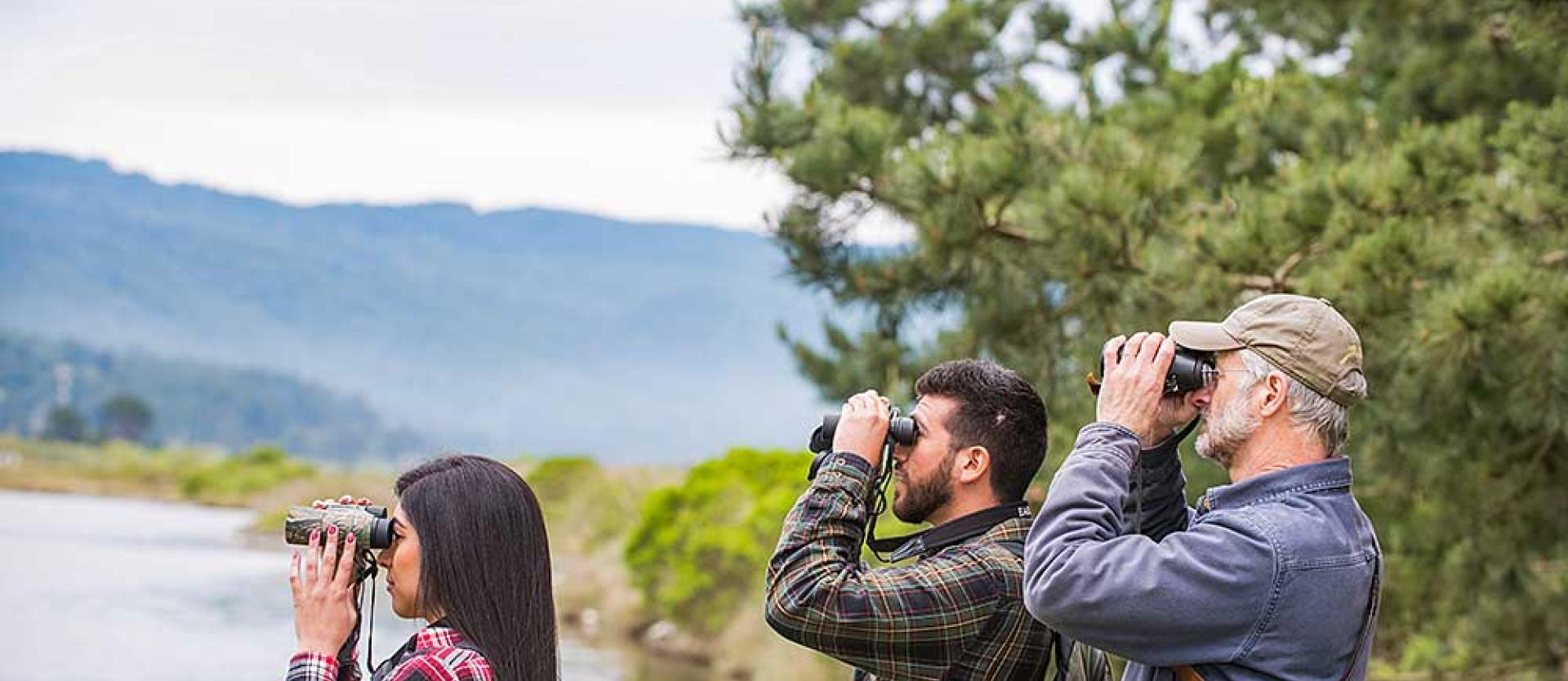
Faculty
The foundation of our program is our faculty, a team of ornithologists and mammalogists who are committed to your education. They’ll work closely with you in the classroom, in the lab, and in the field, providing the extra support you may need to be successful.
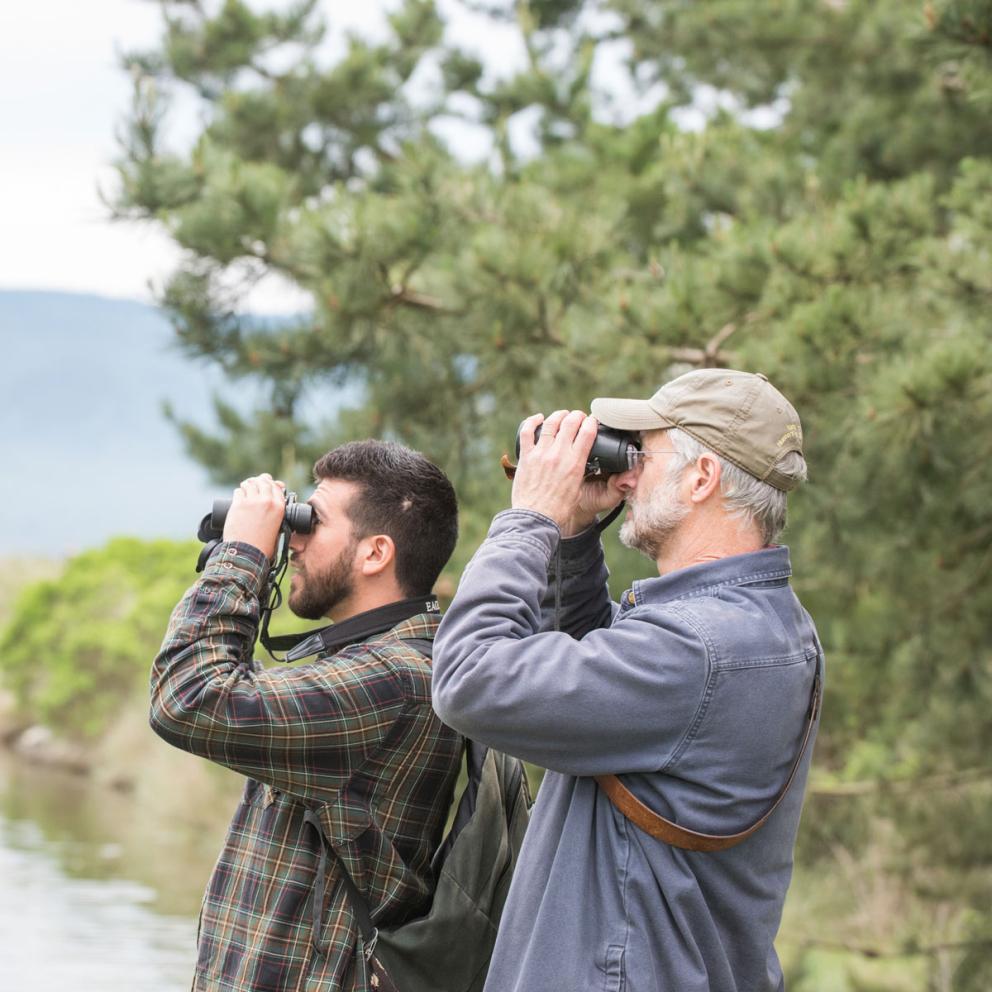
Hands-on Learning
Conduct field research in diverse natural habitats and take weekend camping field trips to practice field techniques. And in your senior year, work on an independent research project under the supervision of a faculty member for your culminating experience.
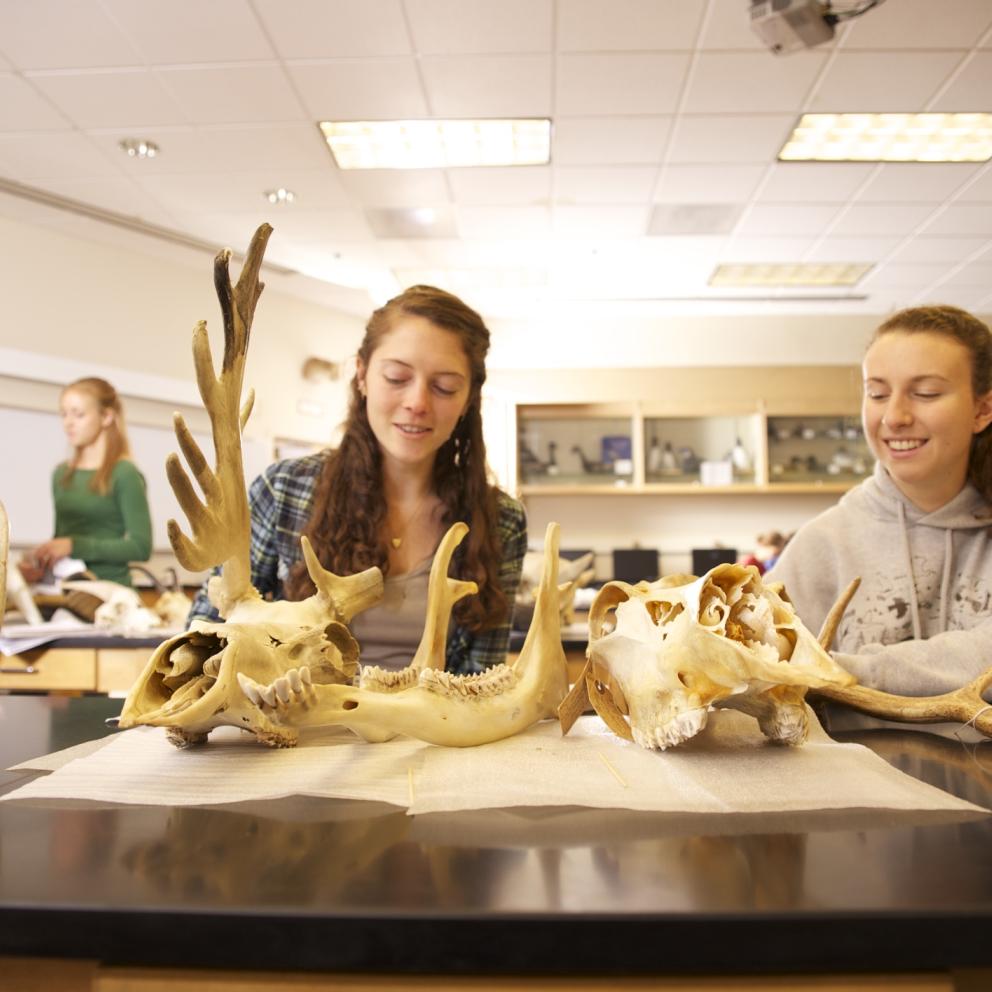
Did you Know?
First-time freshmen will join the Klamath Connection, in which they will explore the relationships between science, traditional ecological knowledge, the environment, and Native American communities all through the lens of California’s second largest river, the Klamath.
Wildlife students have a long history of winning the Quiz Bowl, The Wildlife Society’s annual national competition that pits undergrads from around the country against each other.
Wildlife faculty, graduate students, and undergraduate students are among the leaders at Cal Poly Humboldt and the Cal State system in their record for attracting external grant funding and publishing applied and basic research in peer-reviewed journals.
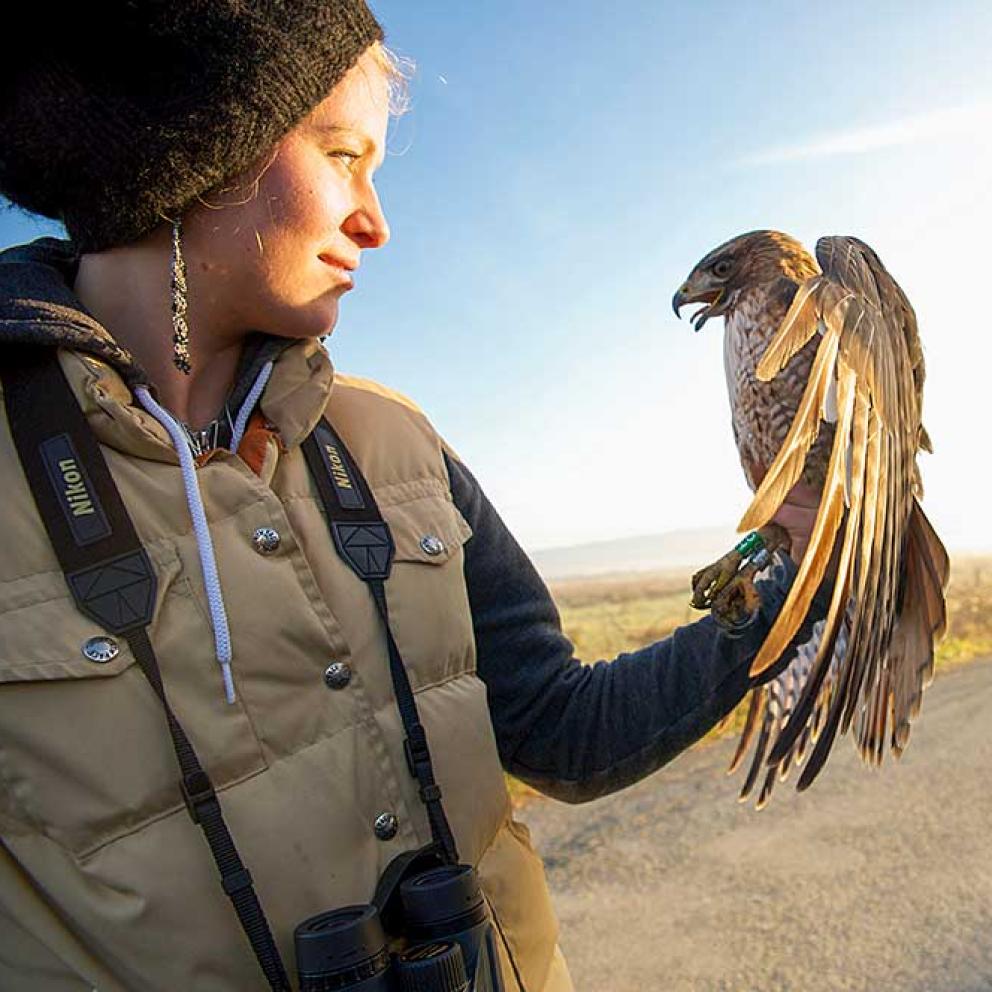
Careers
Wildlife students graduate with the knowledge and field research skills to pursue several meaningful careers. Many go on to work as wildlife biologists for state and federal natural resource agencies. Others join conservation organizations, private businesses such as ecological consulting firms and timber companies, and zoos and wildlife rehabilitation centers.
- Wildlife Biologist
- Wildlife Refuge Manager
- Wildlife Program Specialist
- Wildlife Manager
- Special Agent - Wildlife
- Fish & Game Warden
- Shooting Preserve Manager
- Fish & Wildlife Assistant
- Wildlife Technician
- Animal Biologist
- Animal Handler
- Animal Keeper
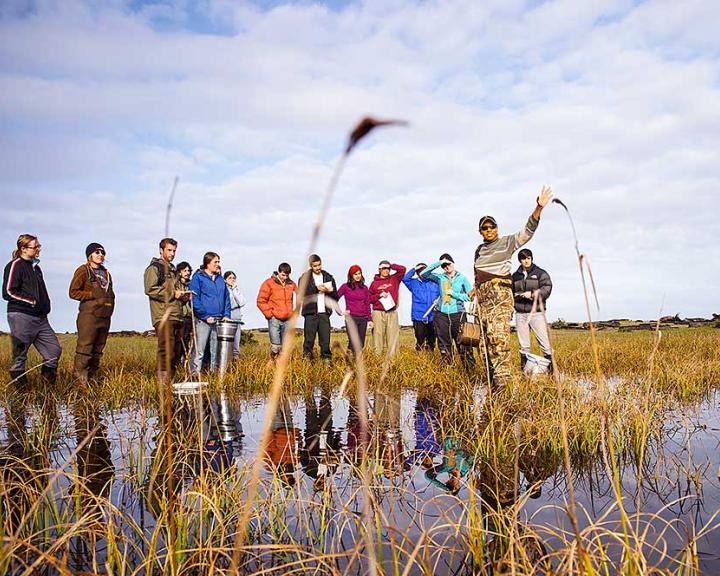
Related Programs
Breadcrumb
Theatre Arts, B.A.
The program emphasizes hands-on learning supported by a solid foundation in theory and history. Because so many people in theatre want to do it all, a little bit of everything is included in the core program, with the opportunity to take electives in either Performance or Design & Technology. The Theatre Arts major prepares students for careers in theatre and offers skills essential in film, television, radio, and other production oriented fields. In addition, students in theatre develop skills in problem solving, teamwork, creative processing, collaboration, accountability, and communication of ideas: skills and practices demanded in a wide range of careers.
Why this Program
Take advantage of several work opportunities offered by the department. Make wigs for the Costume Shop, hone your technical theatre production skills in the Electrics and Sound Shop, and learn how to set the stage in the Scene and Props Shop.
The annual theatre production season involves students at all levels in a variety of theatrical works such as classics, modern/ contemporary plays, and original pieces. Musical productions, in collaboration with the Music program, provide opportunities for students every other year.
Students create new designs, scripts, interpretations, and solutions.
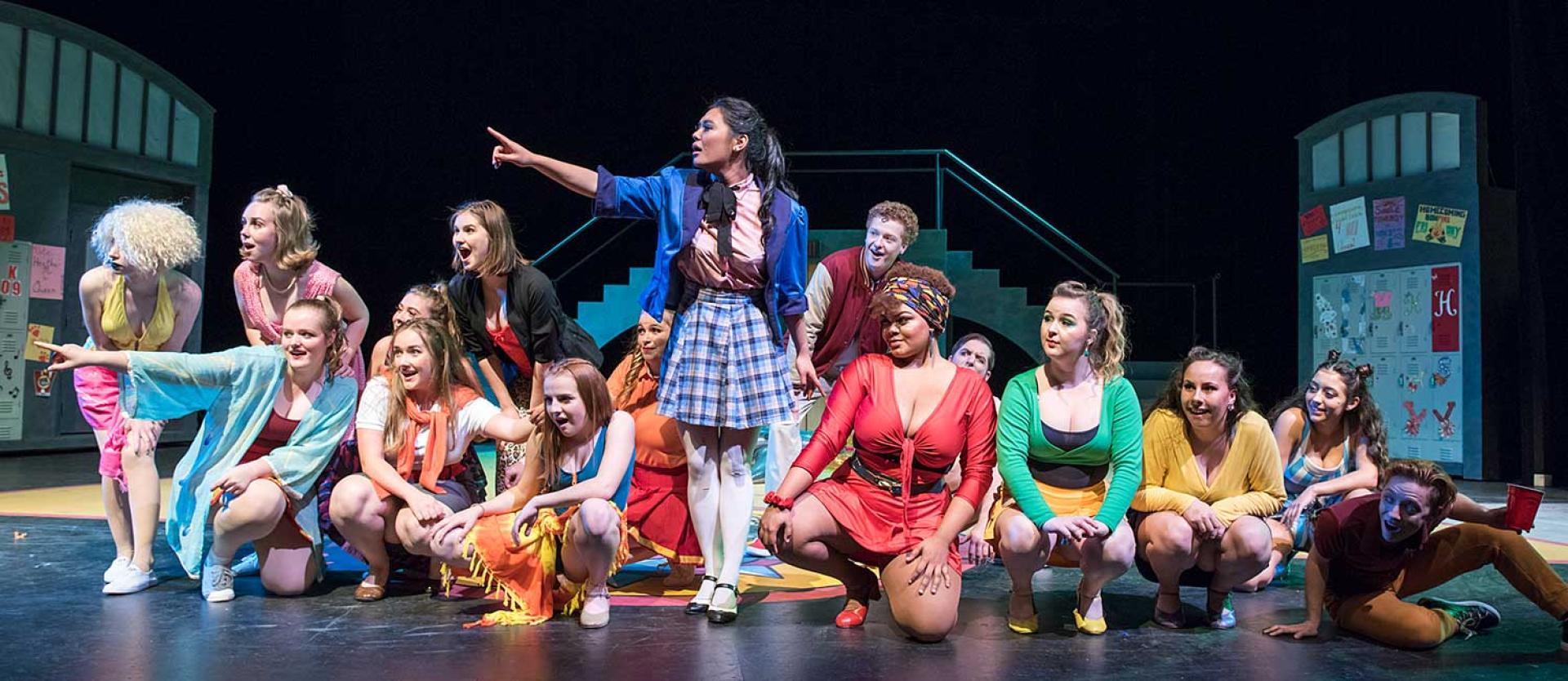
Did you know?
Unique to our Theatre Arts program is the close collaboration with the Film program. Many informal cross-disciplinary collaborations take place among our students.
Humboldt has not one, but three theatres for live performances. Among those theatres is the largest performing arts venue in Humboldt County and seats 750 and is supported by extensive technology and equipment.
The annual theatre production season involves students at all levels in a variety of theatrical works such as classics, modern/contemporary plays, and original pieces. Musical productions, in collaboration with the Music program, provide opportunities for students every other year.
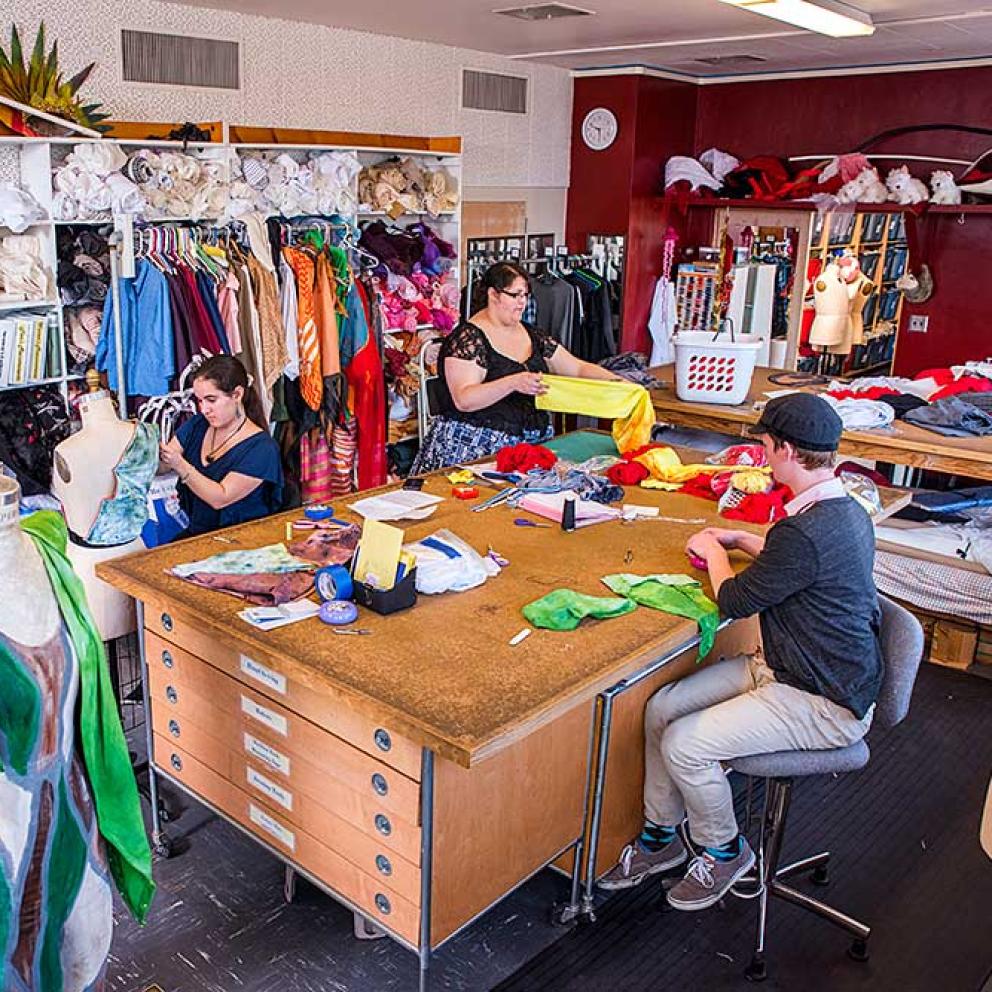
Careers
Being a Theatre Arts major isn’t just about being on stage in front of an audience. There is a wide spectrum of related behind-the-scenes careers that a degree will prepare you for.
- Actor
- Casting Director
- Costume Designer
- Director
- Lighting Designer
- Makeup Designer
- Playwright
- Publicist
- Scenic Artist
- Set Designer
- Stage Manager

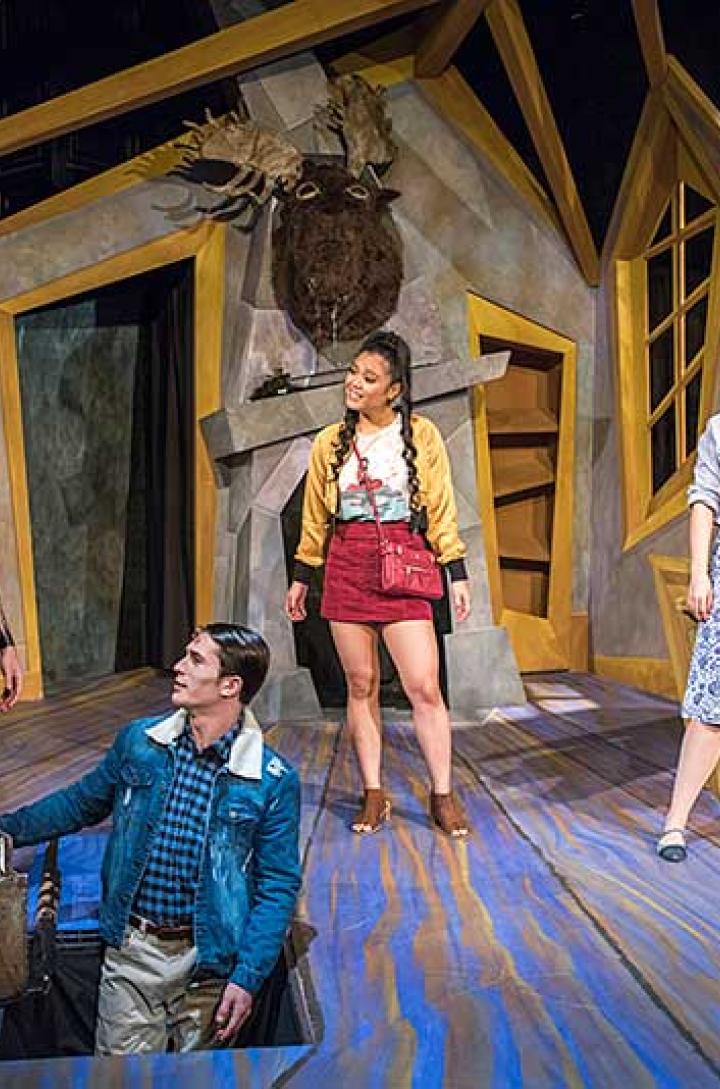
Breadcrumb
Spanish, B.A.
Cal Poly Humboldt’s Spanish major gives students a well rounded exposure not only to the language but to various Spanish cultures. All classes are taught in Spanish, from basic to advanced levels, with a focus on four linguistic skills: listening, speaking, reading, and writing. Courses in literature and civilization provide a critical understanding of the cultural heritage of the Spanish-speaking world, including the United States. The program also offers courses that are designed for students who have grown up speaking Spanish at home (Spanish Heritage Speakers).
Why this Program
Faculty-led Study-abroad options include Oaxaca, Mexico; and León, Spain. There, you can participate in meaningful service-learning by combining your studies with an internship that makes a difference in the lives of local citizens.
Graduates of this program have found careers as teachers, interpreters, literary or technical translators, international bankers, and more.
There are plenty of ways to be immersed in your major, get involved on-campus and in the local community, and meet new people through clubs, weekend retreats, and literary workshops.
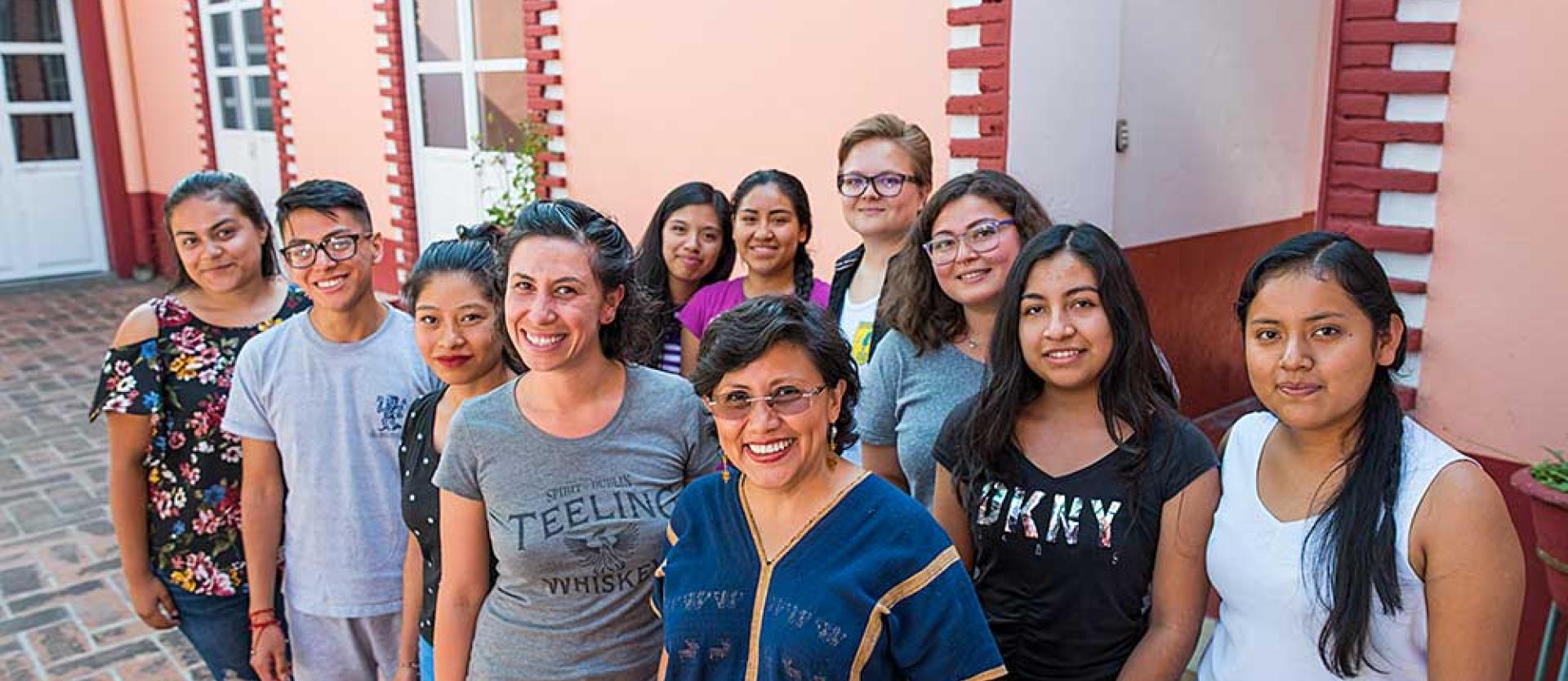
Did you know?
“The Extraordinary Voyage of Kamome: A Tsunami Boat Comes Home" is a true story about students in two countries who formed a connection through a natural disaster and a boat. Spanish majors helped review and edit the Spanish translation of the book.
This program is certified by the California Commission on Teacher Credentialing. Students who successfully complete this program will have demonstrated subject matter competency in Spanish and therefore, will not be required to take the California Subject Exam for Teachers for Spanish.
Hosted by El Centro Académico Cultural de Humboldt, one of four cultural centers at Humboldt, Hispanic Heritage Month is a series of campus events that celebrates Latinx and/or Hispanic cultures.
Spanish is the world’s second-most spoken native language and the fourth-most spoken language after Mandarin, English and Hindustani.
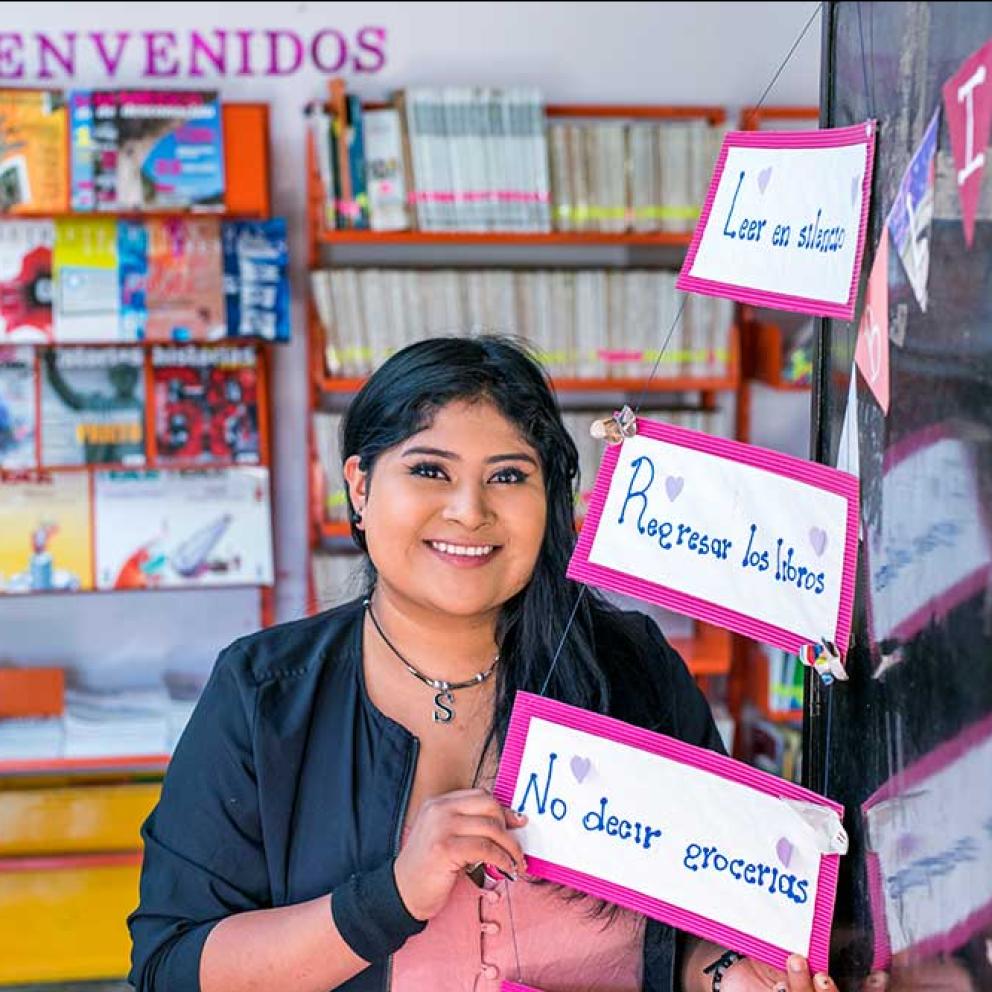
Careers
Students with national and international understanding of cultural, ethnic, and racial issues, coupled with second or third language competency, will be better equipped to meet the professional challenges of the 21st century. Potential careers include:
- Bilingual Occupations
- Foreign Correspondent
- Health Care Worker
- Import-Export Businessperson
- Interpreter
- Linguist
- Literary Translator
- Teacher
- Technical Translator
- Travel Agent

Breadcrumb
Sociology, B.A.
We work to address social justice at the local, regional, and global level. Our goal is to foster a desire and respect for social change amongst our students and our local community. Our programs encourage imagination, creativity, and the development of applied methodological skills. We are engaged in our local community and the larger national and international debates through our research and our scholarly activism.
Why this Program
Many Sociology students go on to make a difference in the world. Social justice shapes all our course offerings and content.
Studying at Humboldt means gaining hands-on, real-world experience that you wouldn’t get as an undergraduate at many other universities.
Because of the breadth, adaptability, and practical applications of Sociology, students find successful careers in many different sectors.
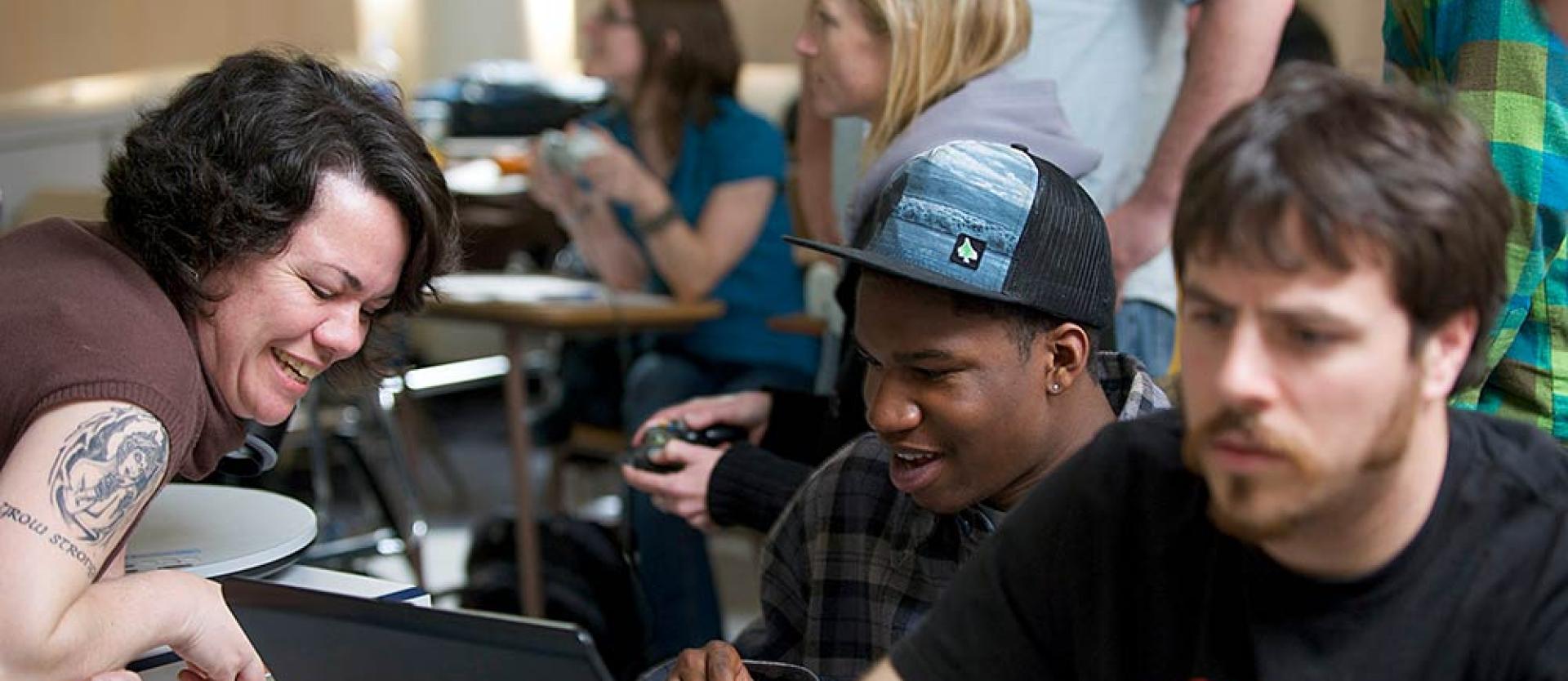
Combined Bachelor’s and Master’s Pathway
Earn your B.A and M.A. in just five years (three years for transfer students) with our Blended Bachelor’s and Master’s Program
You can complete either a Sociology B.A. or a Criminology & Justice Studies B.A, then continue on to receive a Public Sociology M.A.
Did you know?
Department faculty members have a strong commitment to social justice that shapes course offerings and content.
Our campus provides a sense of care, support and belonging, and better prepares students to approach their chosen fields through a lens of social justice.
We strive for societal and economic improvement, demonstrated in our personal passions and the professions that we pursue.
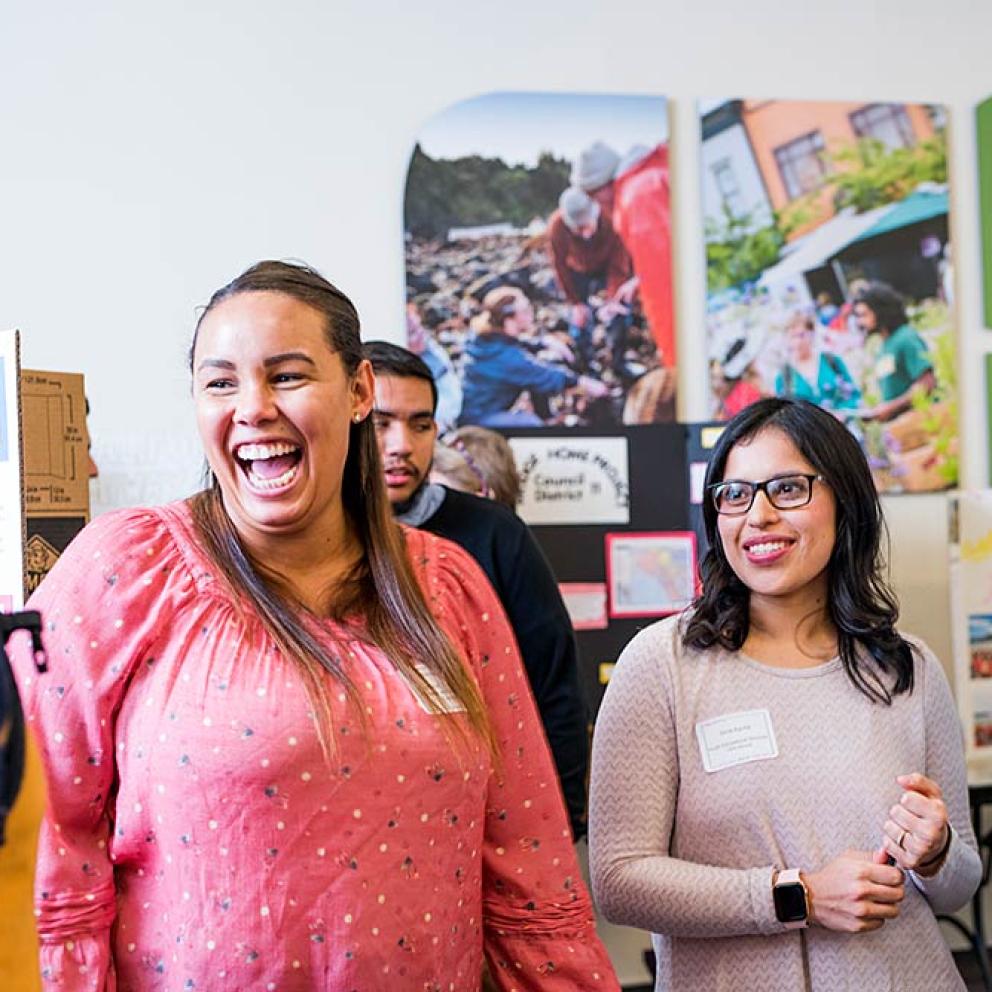
Careers
A career in sociology could include an academic career, but most graduates work in other sectors: government, non-profit, research and business. Society needs people who understand the complexities of a multicultural society. Sociology graduates offer a unique understanding of the social world and possible social solutions to major social issues.
- Attorney/Mediator
- Clinical Research Associate
- Community Organizer
- Criminologist
- Diplomat
- Director
- Drug Counselor
- Employment Counselor
- Executive Director
- Researcher
- School Counselor
- Social Worker
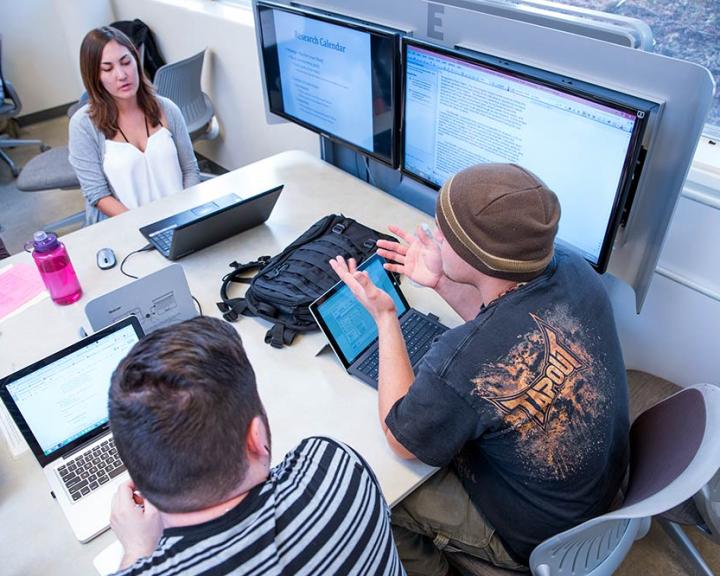
Breadcrumb
Social Work, B.A.
At Cal Poly Humboldt, you’ll take what you learn in the classroom and put it to work in the real world—applying your new skills in diverse settings, ranging from small nonprofit agencies, tribal social services, large public organizations, and schools. Our students form lasting partnerships with faculty and staff members who are committed to student development. The faculty is dedicated to the well being of students based on caring and compassion.
Why this Program
Our program emphasizes working with Indigenous and rural communities and coursework designed to contribute to decolonizing mainstream social work practice.
Senior placements allow students to work directly with community mentors to develop professional practice skills and apply what they have learned.
We have cultivated strong on-going partnerships with county and tribal social services programs in far northern California as well as schools, non-profits and community advocacy organizations. Courses are designed to support people who are rooted in their communities.
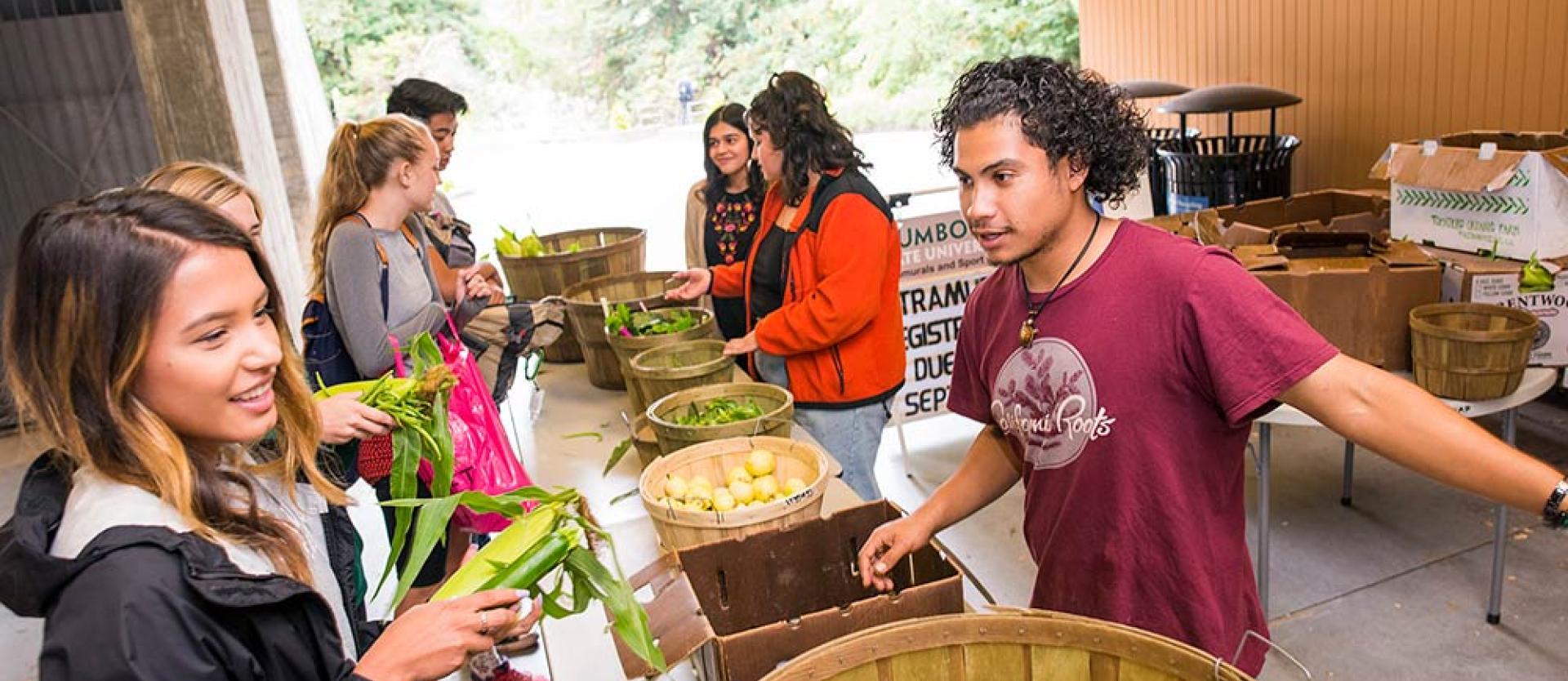
Academics & Options
The purpose of the Bachelors of Arts in Social Work program is to prepare students for beginning generalist social work practice responsive to the challenges and resources present in rural areas in particular and in more populated areas in general.
Did you know?
Our distance learning program was created in partnership with county and tribal social service providers in far northern California, with the goal of developing a workforce prepared to serve rural and tribal communities in the region. Courses in the online program are designed to support people who are rooted in their communities.
Our department supports progressive practice that is based on peace, justice, experimentation, risk-taking, inclusiveness, partnership, non-expert paradigms of relationships, and a belief in the uniqueness of each student’s own professional goals and vision of becoming the social worker they want to be.
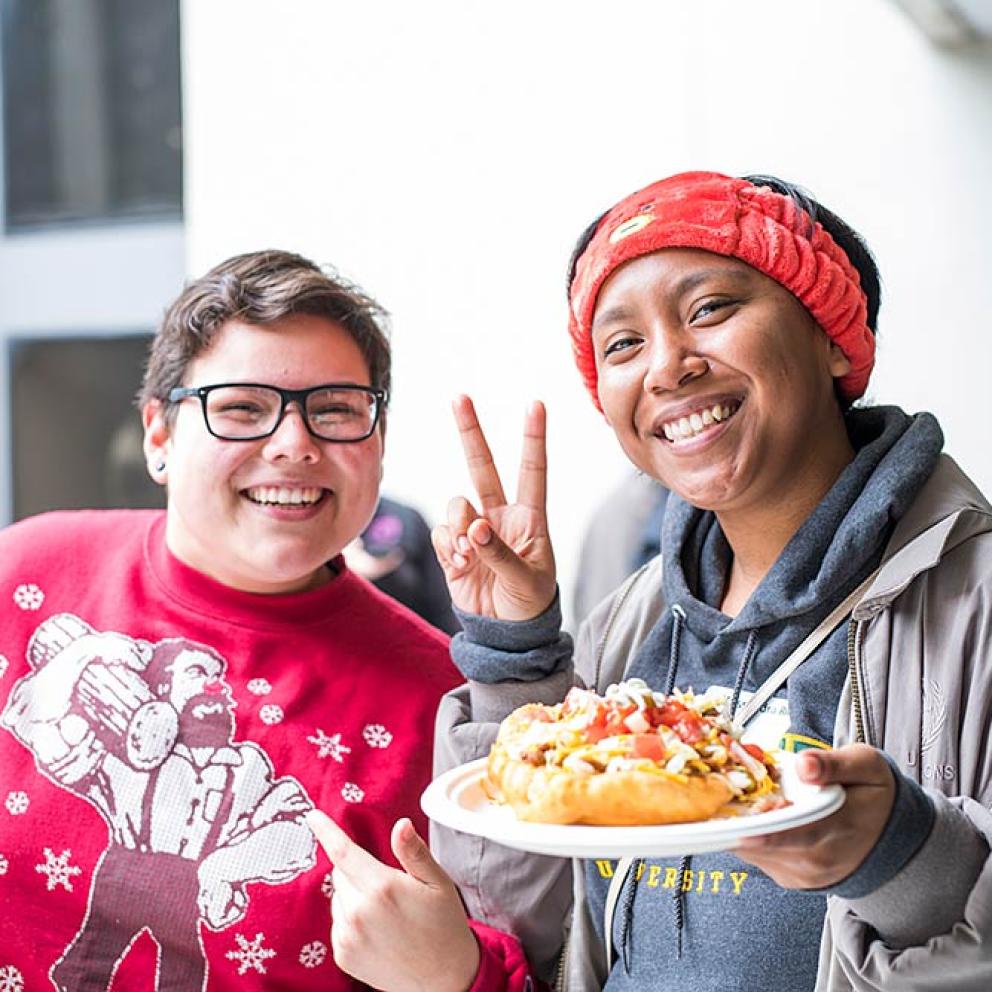
Careers
Whether you want to advance in your current career, make a transition, or add a degree to amplify your voice and better serve the community you call home, our accessible program has an option to meet your needs.
- Addictions
- Child Welfare
- Clinical Settings
- Domestic Violence
- Family Planning
- Foster Care
- Mental Health
- Public Health
- Public Policy
- Rehabilitation
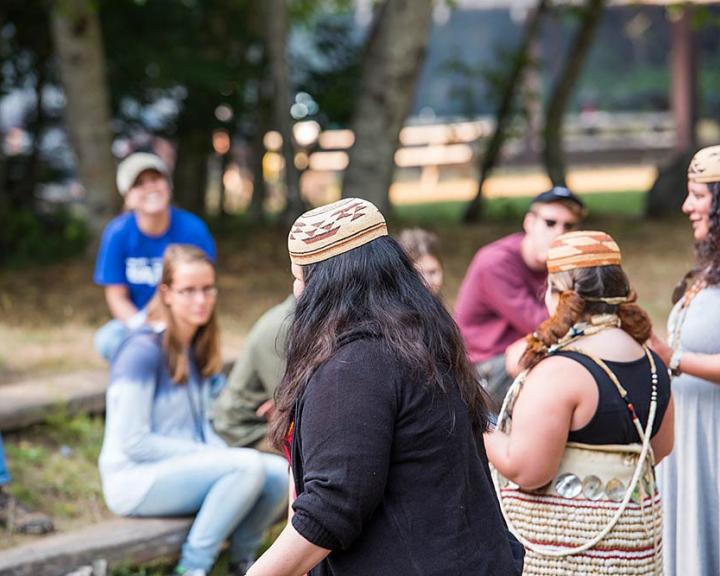
I chose social work after reflecting upon my values. I wanted to provide support to folks in all walks of life, and this pathway is all for that. I enjoyed the compassion and empathy the professors provided. I went through so much, being able to have them hear me and guide me through situations was impactful.







